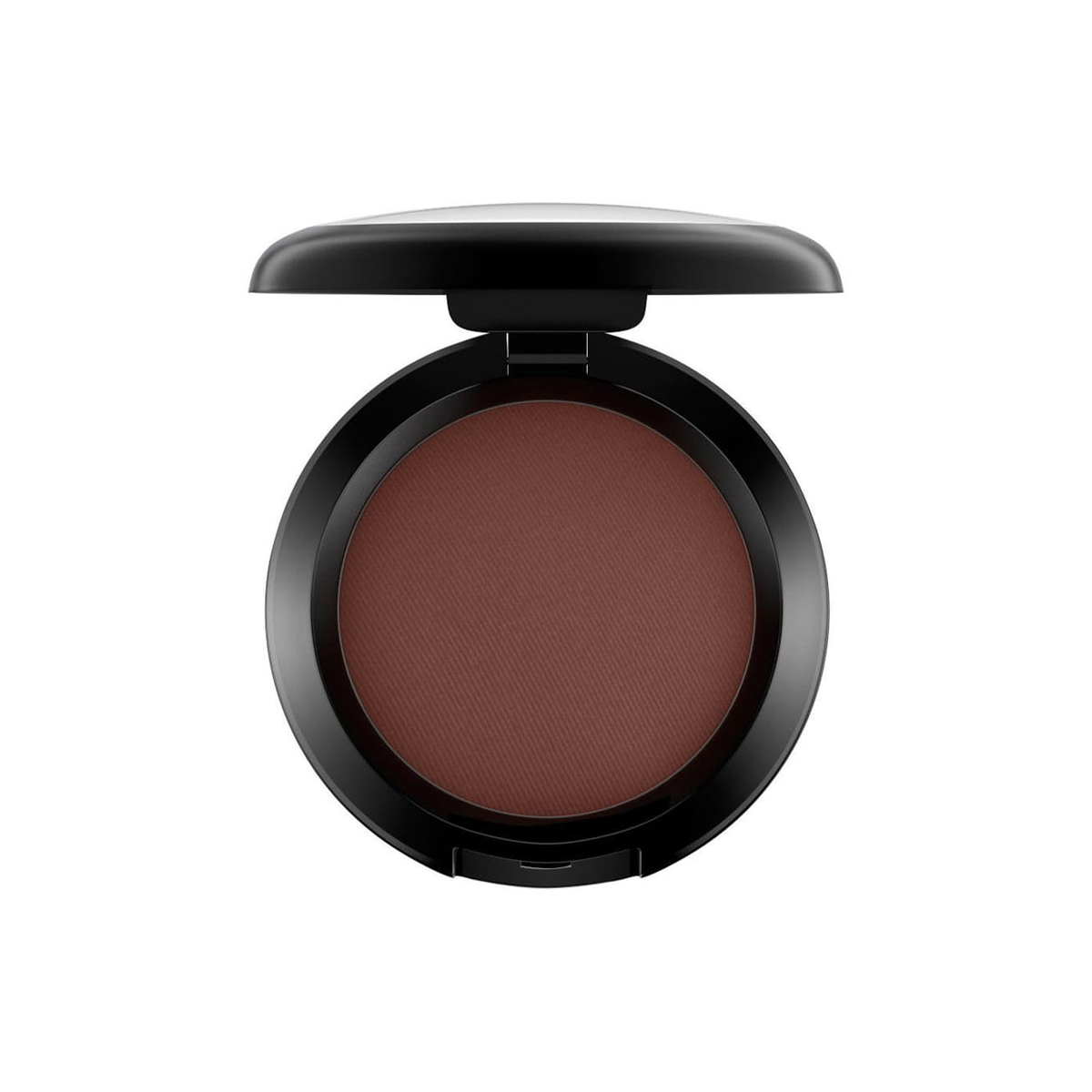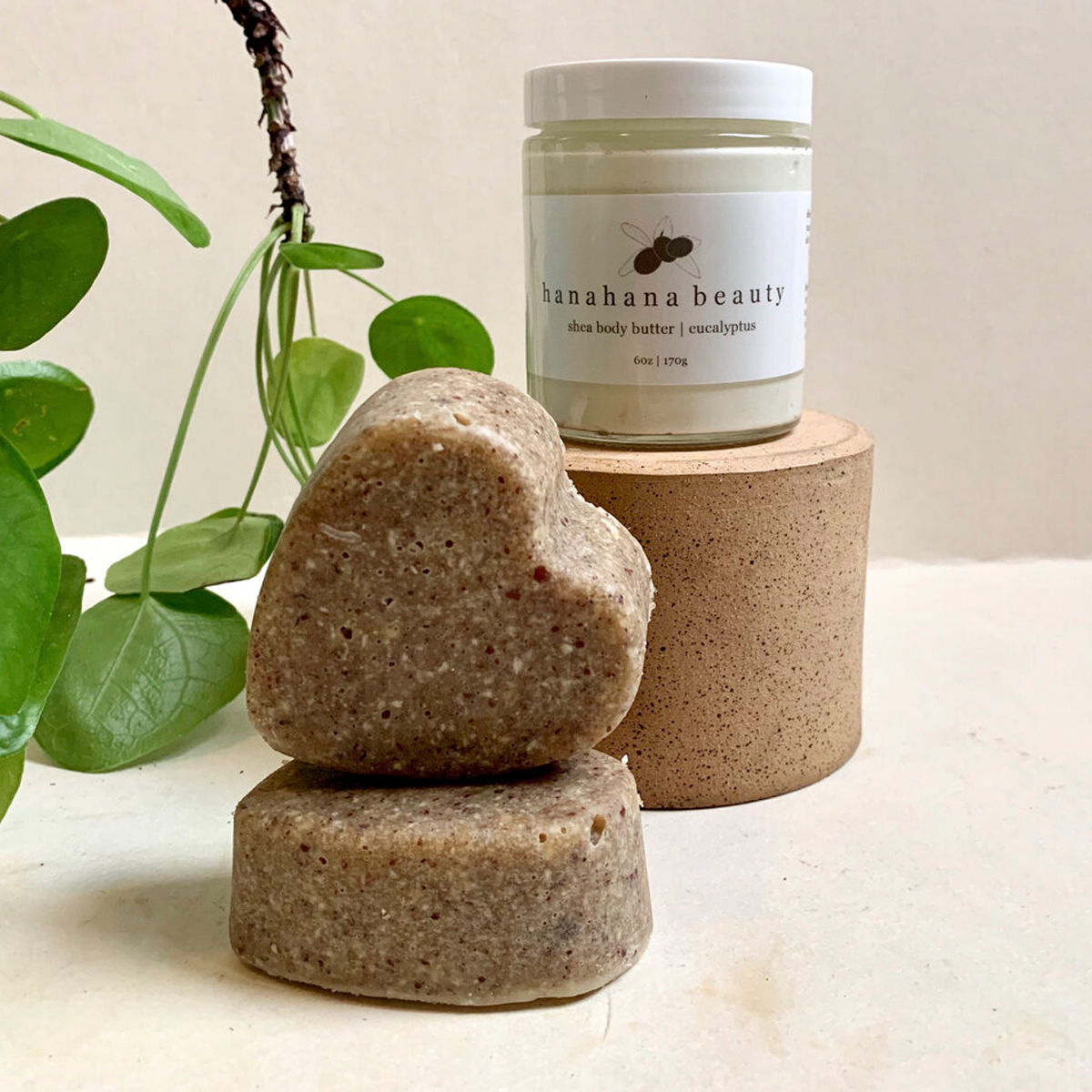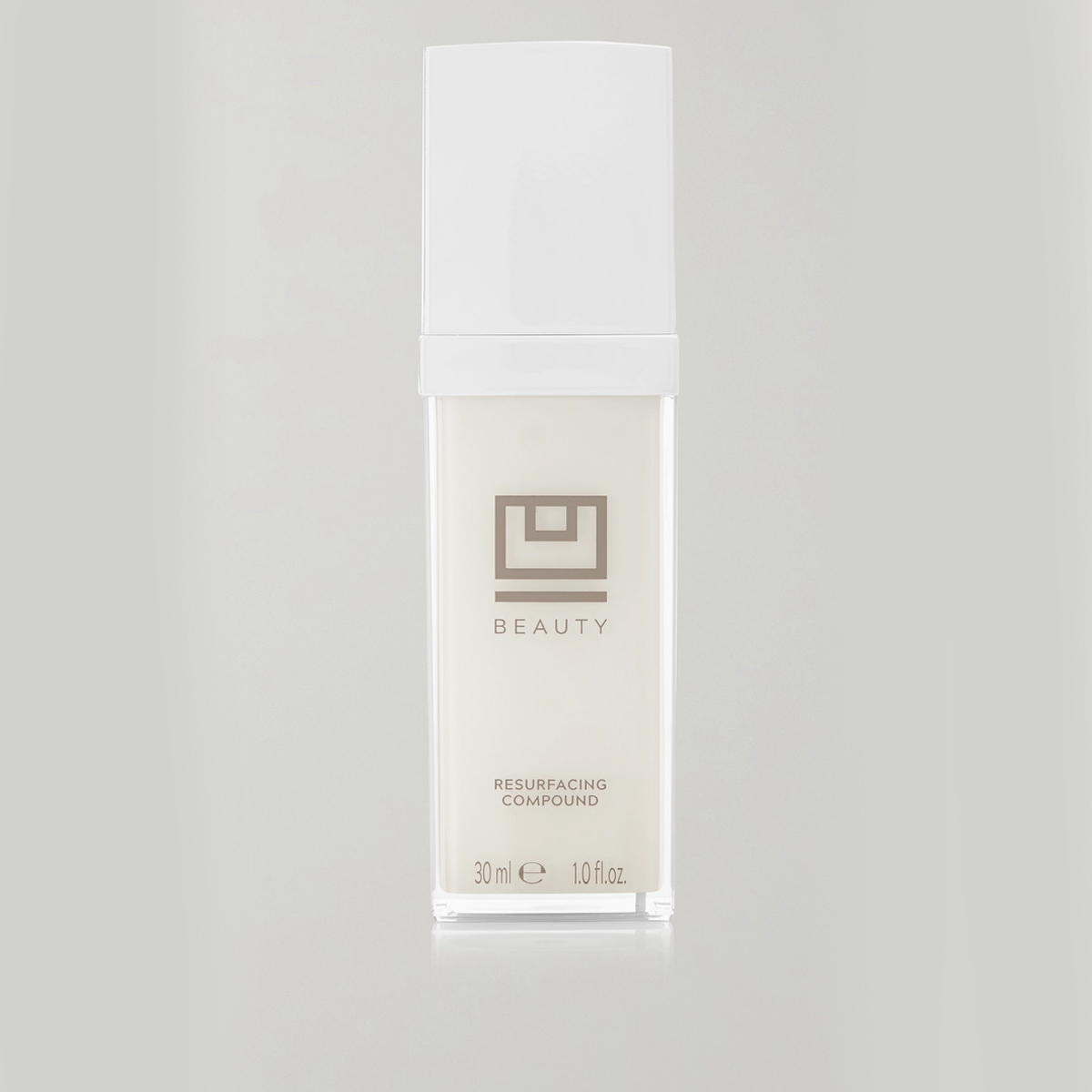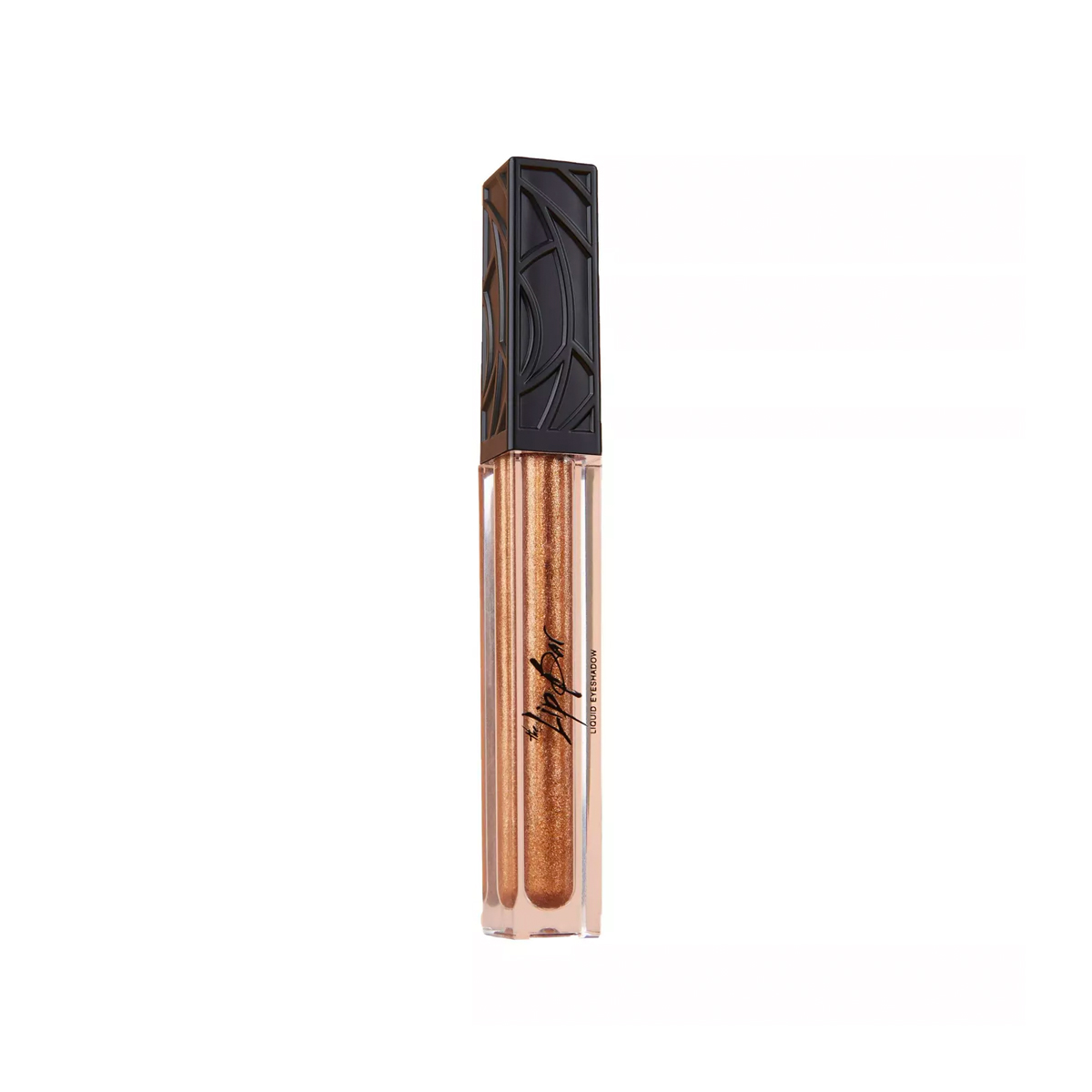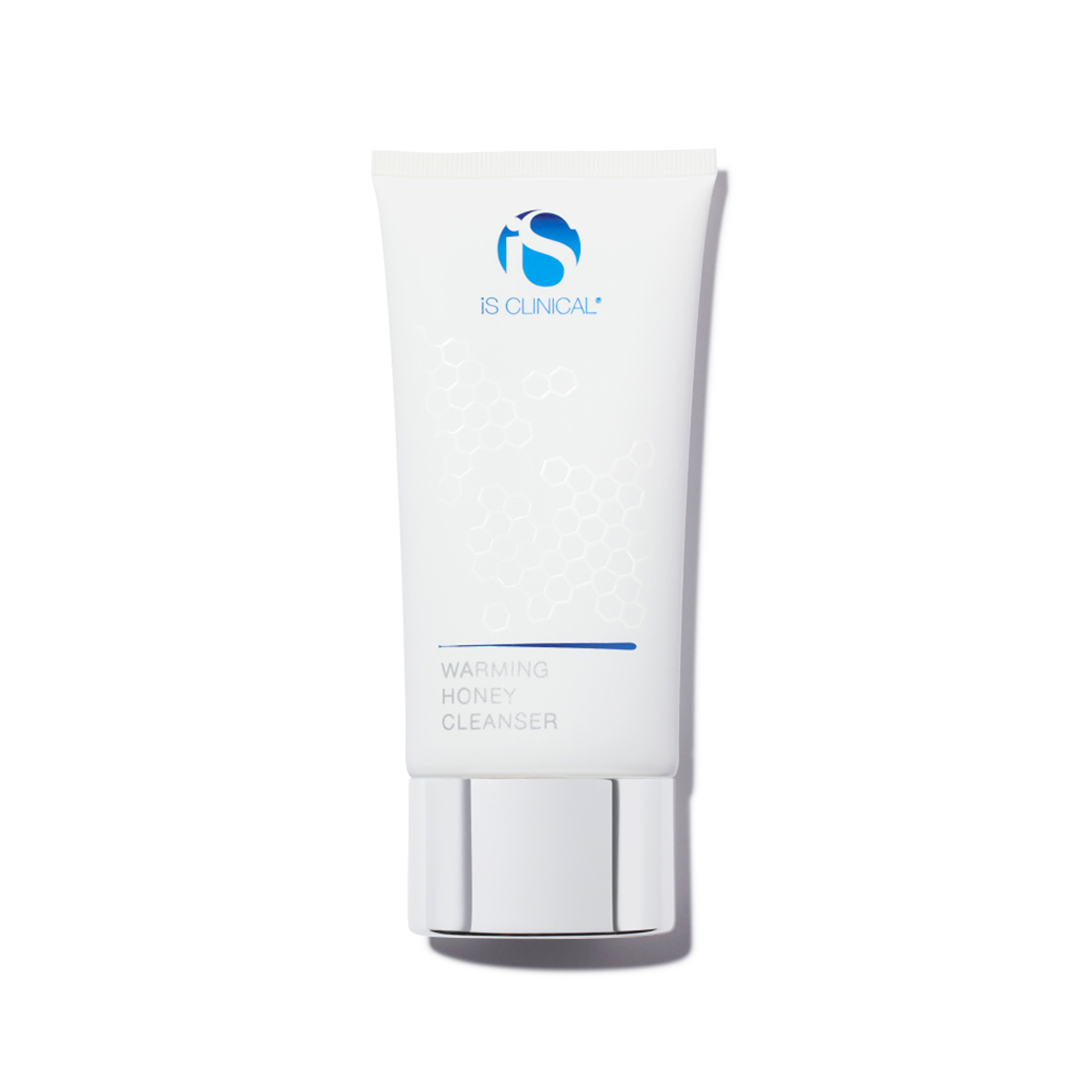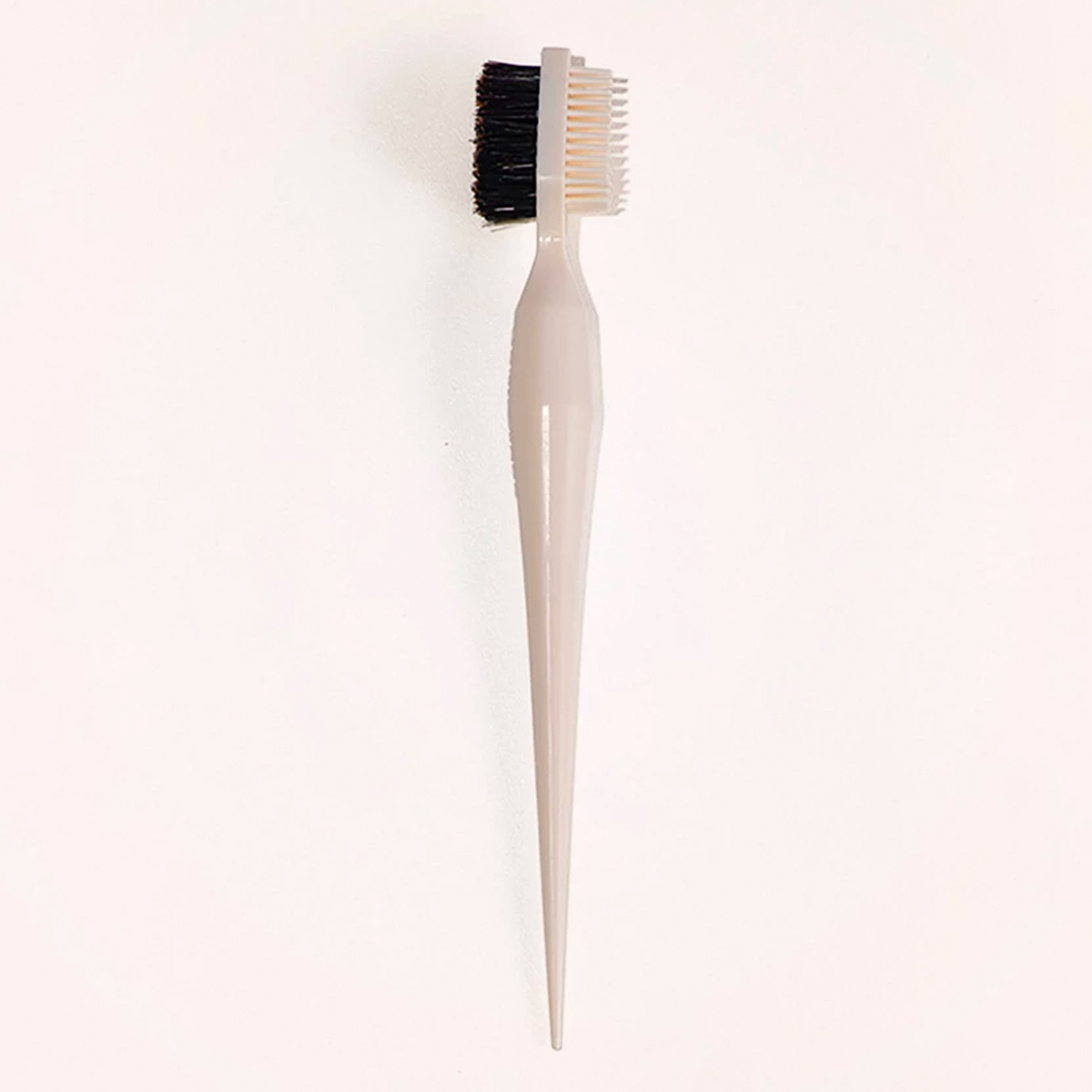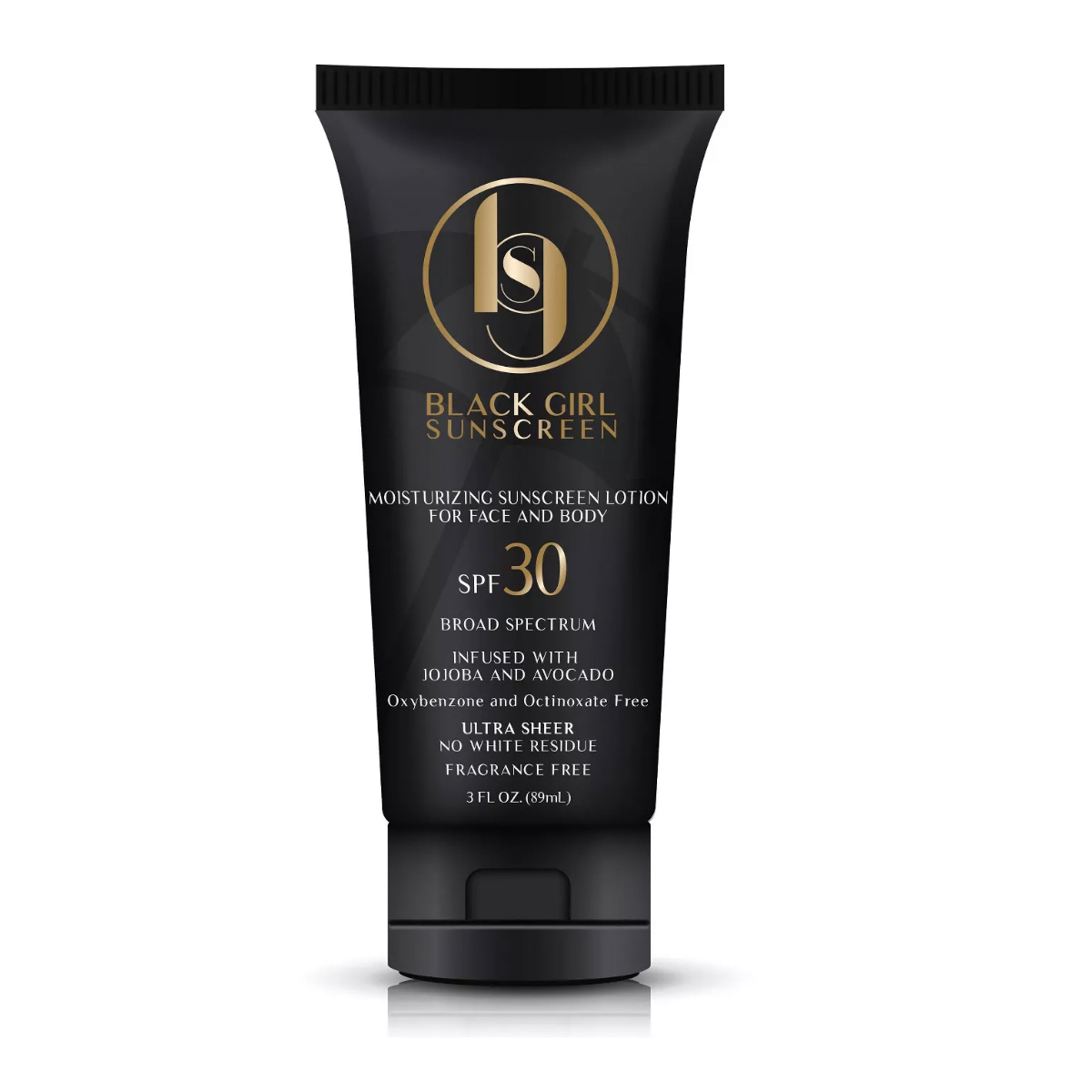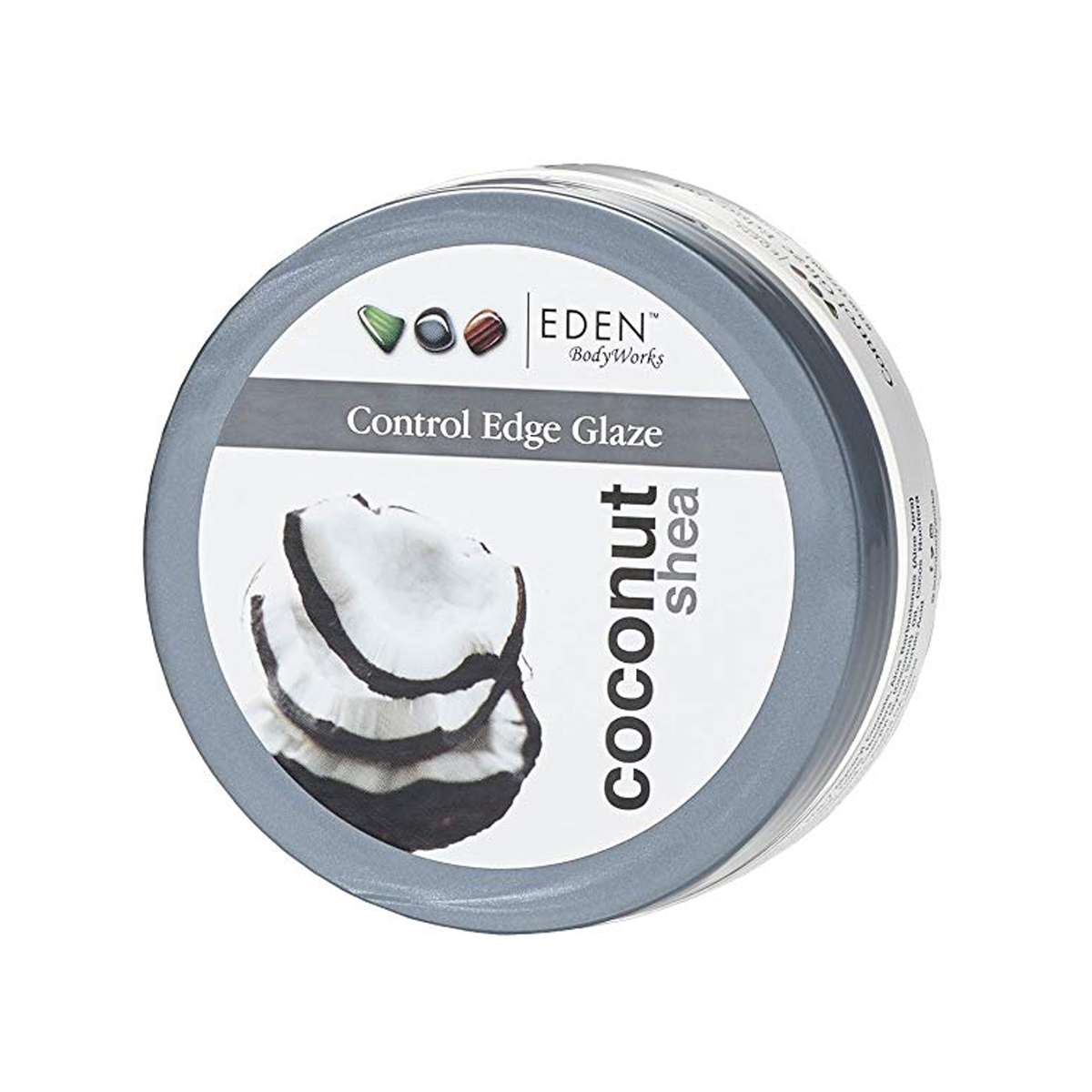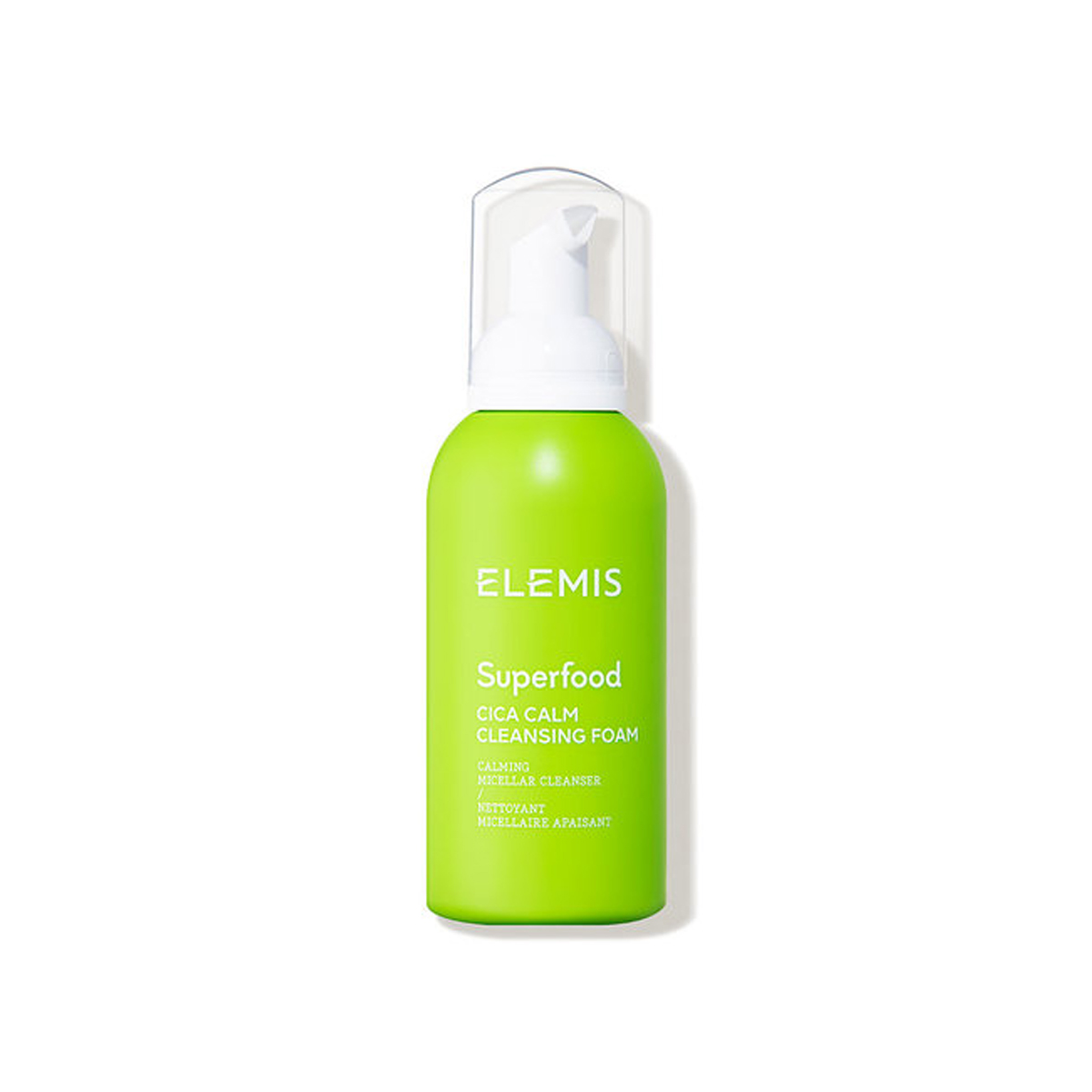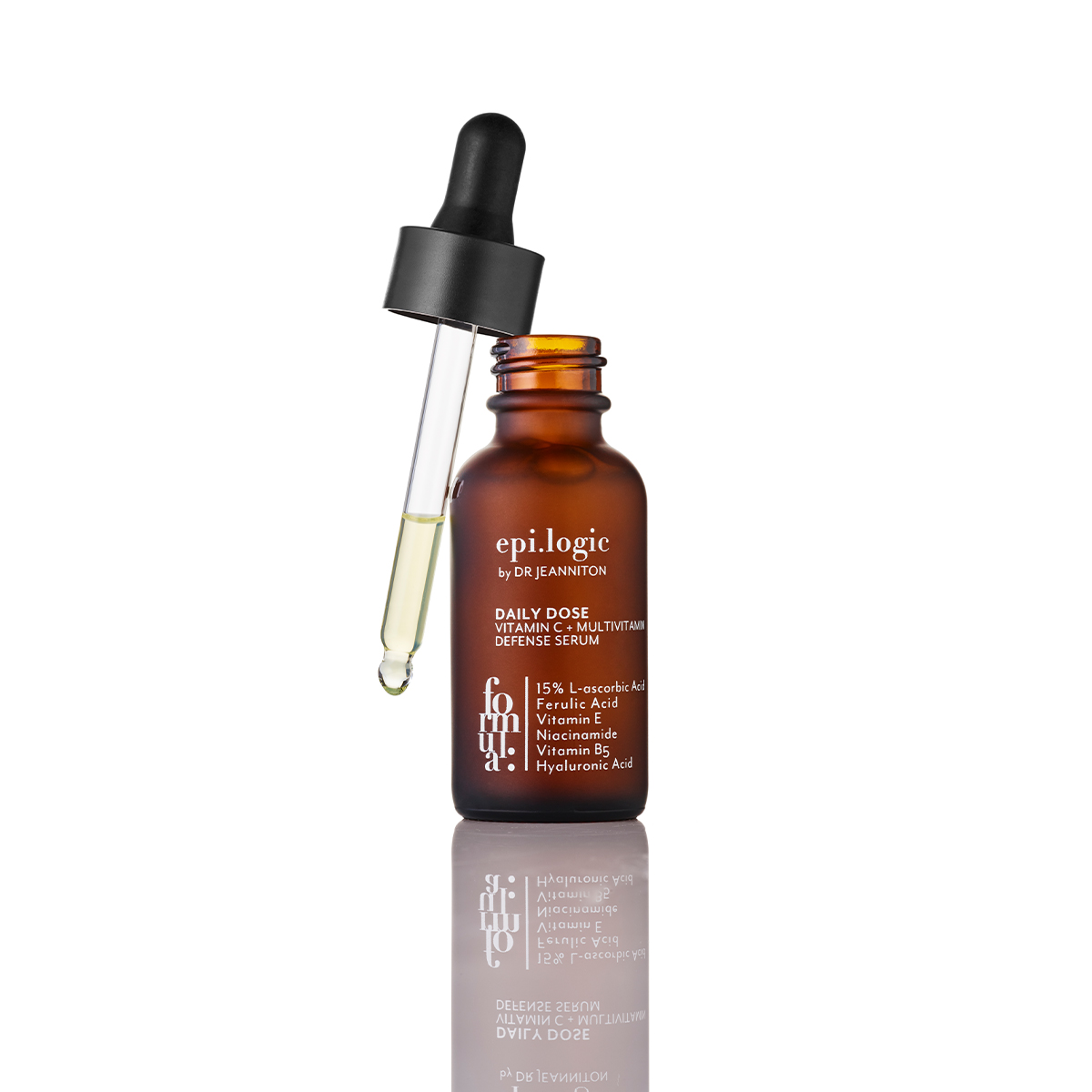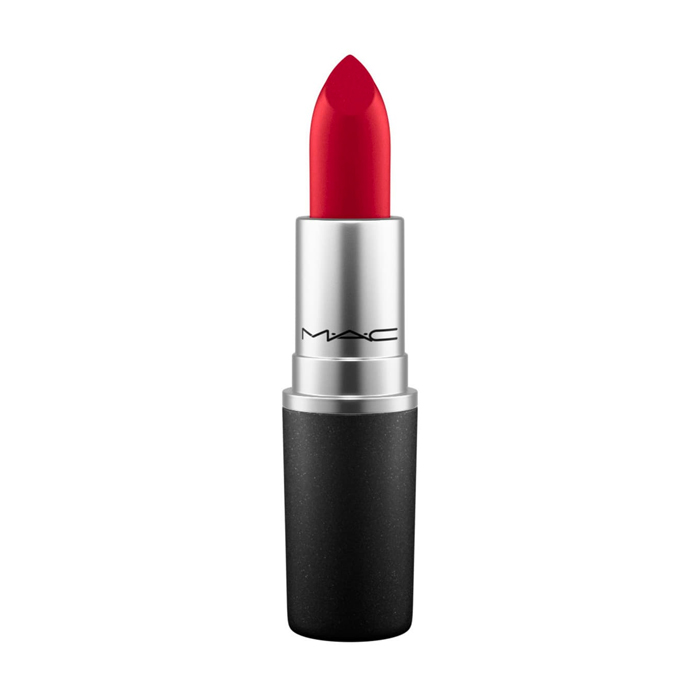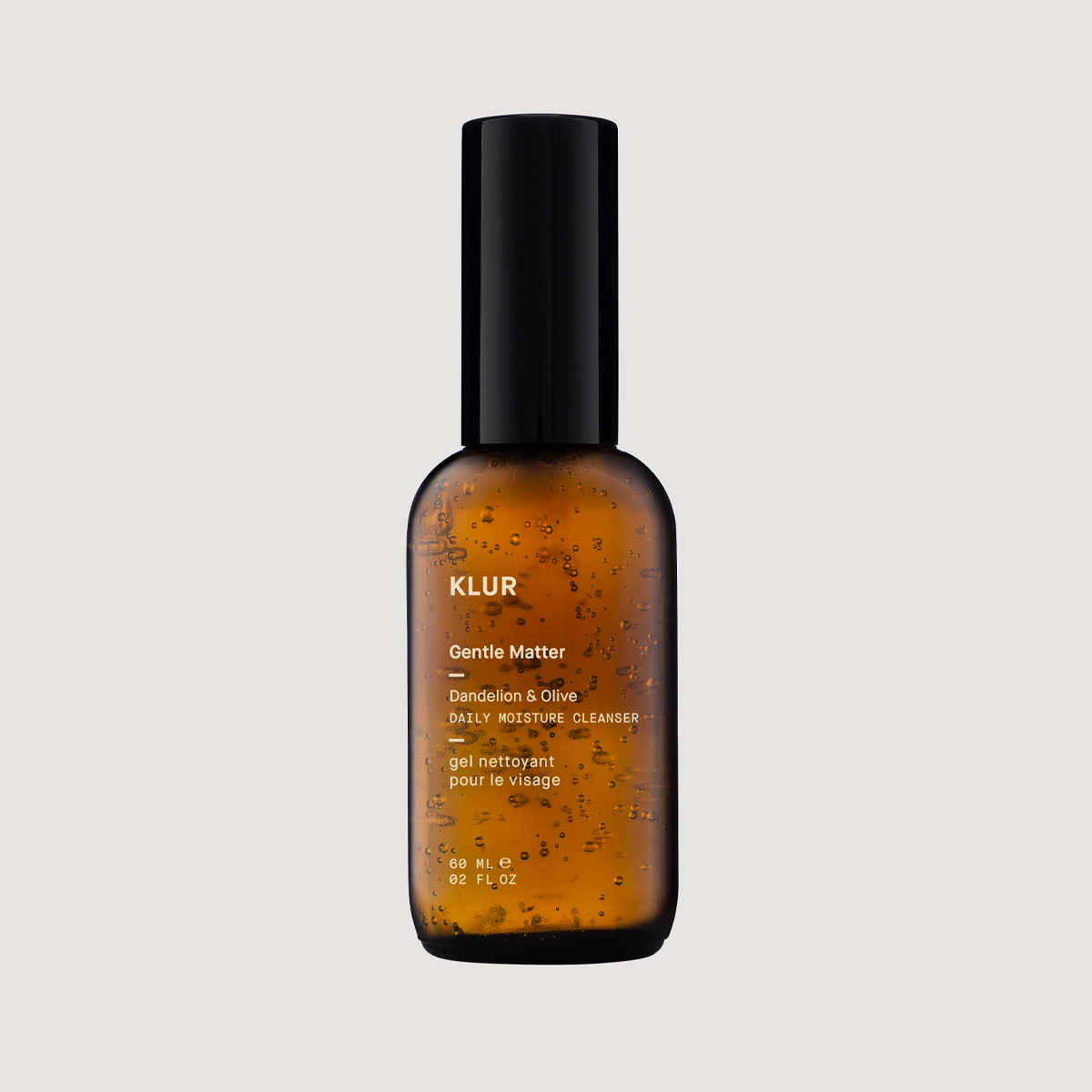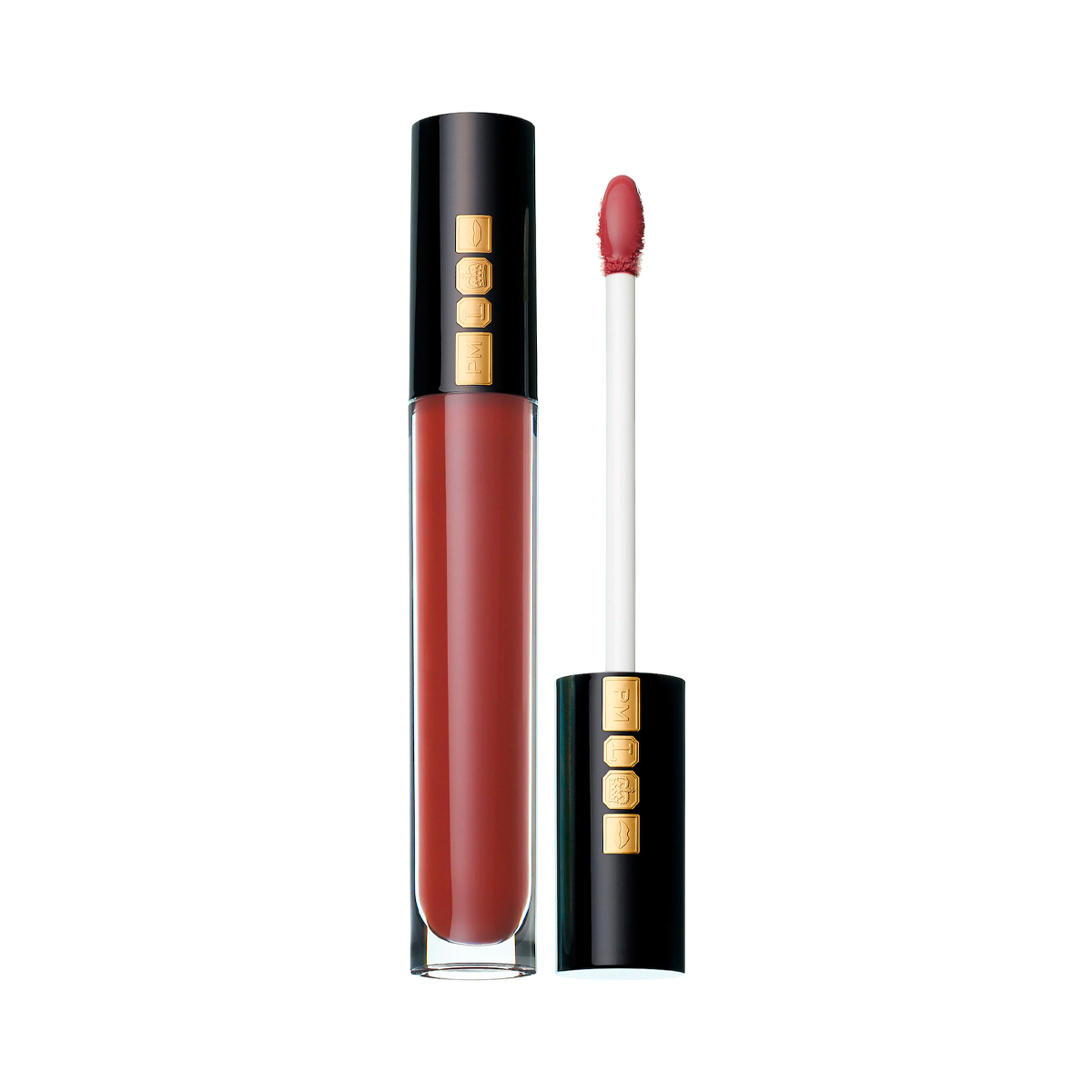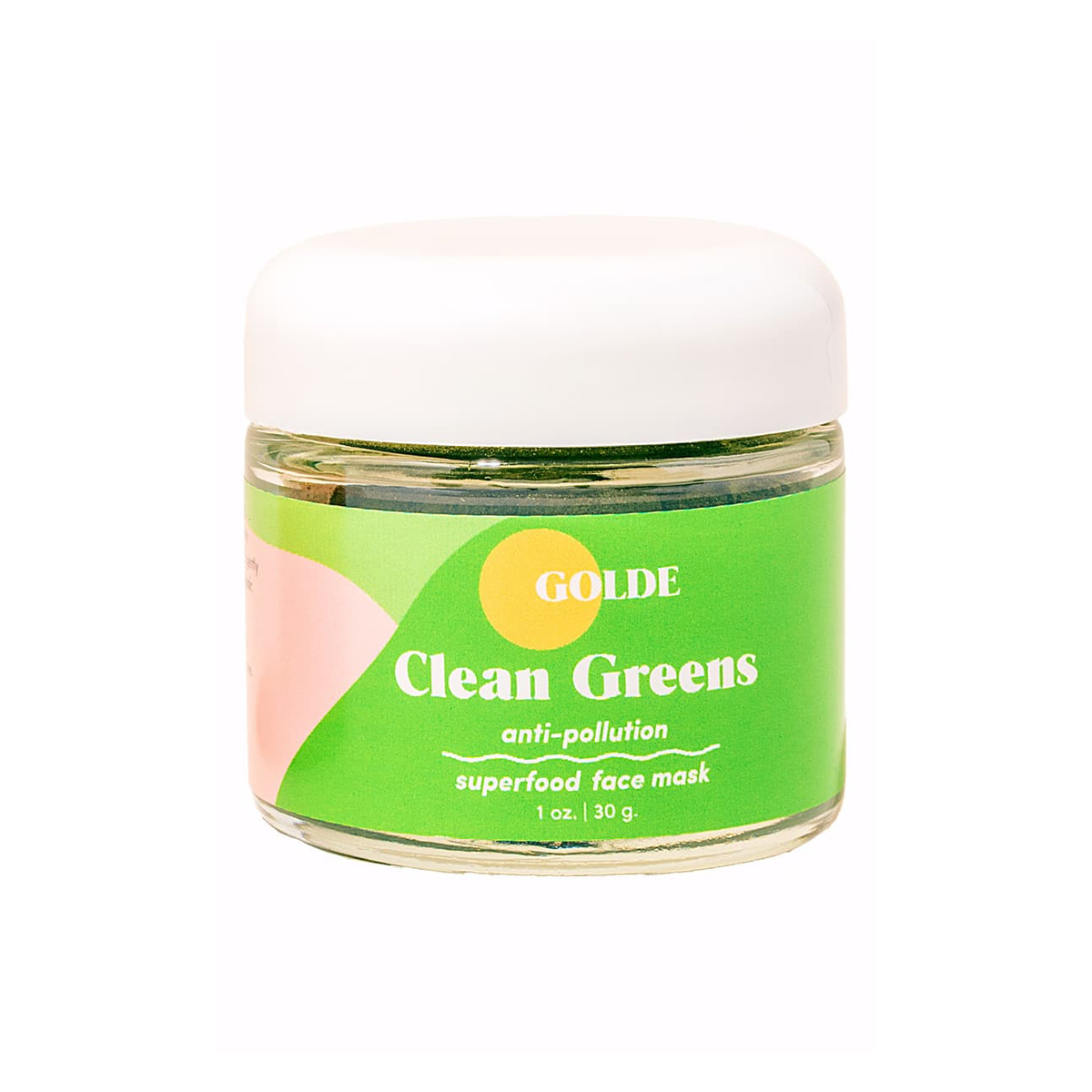14 Black Thought Leaders Defining Cool-Girl Beauty Right Now
For black folks working in the fashion-and-beauty space, the disparities between ourselves and our non-black counterparts are blatant and troubling. We're sitting front-row at high-profile fashion shows, watching only a handful of models who share our skin tones walk the runways. We're receiving self-congratulatory press releases from prestige beauty brands touting extended foundation shade ranges, even though these developments are long overdue and oftentimes still missing the mark. A serious lack of representation in our industry has led to these discrepancies, and while immense progress has been made in terms of diversity and inclusion, there's still a whole lot of work to be done.
Conversations during Black History Month often look back to appreciate the past, and while we hold nothing but respect and gratitude for those who blazed trails before us, we're living in the now and highlighting the black voices that are amplifying the stories and experiences of black folks through their content, their products, and their platforms; those who have made the conscious decision to put themselves out there in spaces that were not designed for them to do so.
Ahead, meet 14 black thought leaders who are not only taking the reins in telling our stories but shaping the narrative around cool-girl beauty and what that means and looks like industry-wide. They're reminding us all that it's cool to care for ourselves; it's cool to see the beauty in every hair texture, every complexion, and every body shape. We salute them, and here, they each share their stories and shed light on how they plan to keep raising the bar in beauty and beyond. We invite you to learn their names and encourage you to follow their work and support their movements.
Nana Agyemang, social media editor at The Cut and CEO of EveryStylishGirl
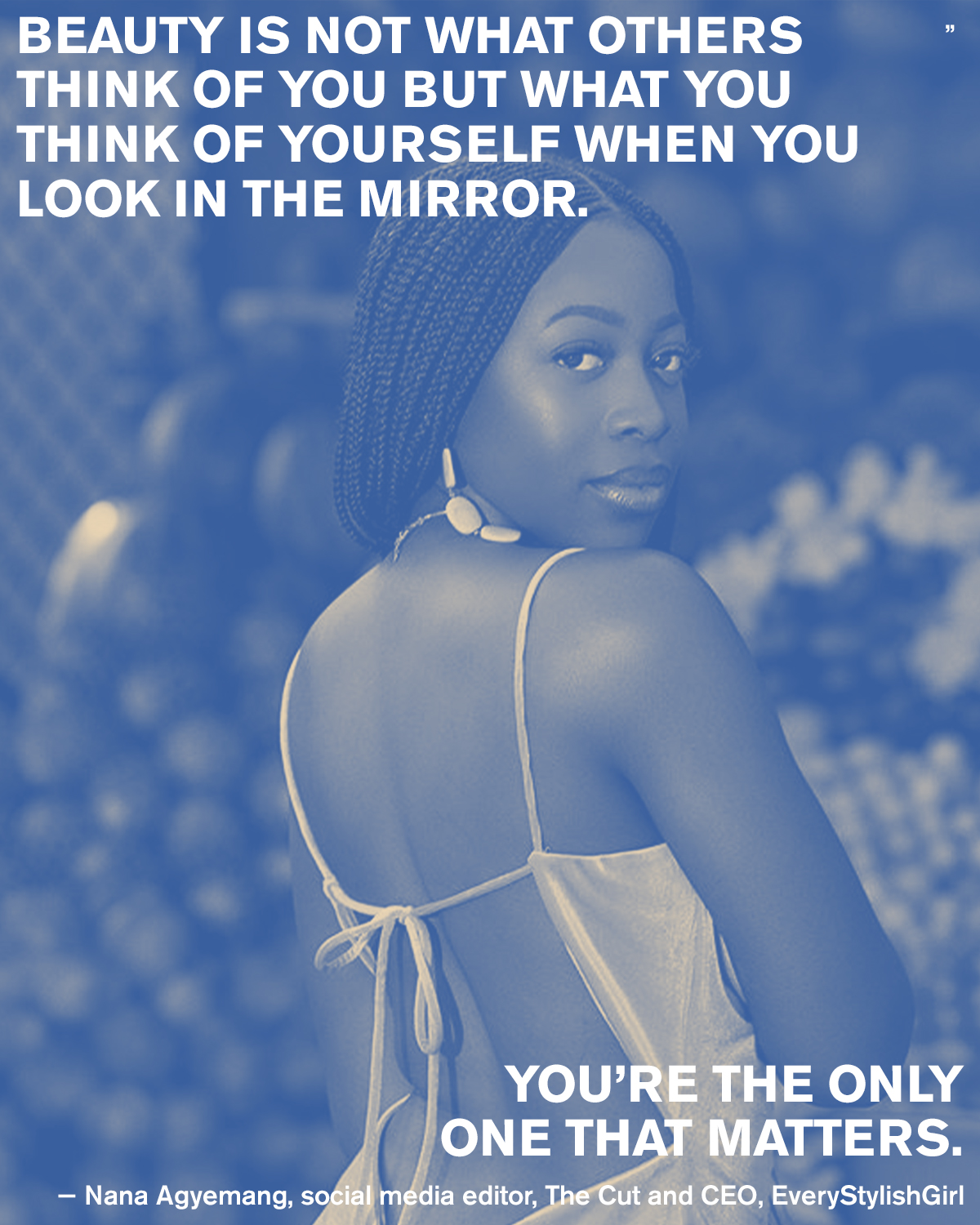
Describe yourself in three words:
Extrovert, open, detail-oriented
What does beauty mean to you?
Loving yourself at your highs and lows. It’s loving yourself with the age and changes your body faces and still feeling beautiful no matter what transitions you experience.
Do you have a personal mantra or affirmation you’d like to share?
Beauty is not what others think of you but what you think of yourself when you look in the mirror. You’re the only one that matters.
What inspires you to do what you do?
The women in my community. Black humans who are at a disadvantage and lack resources inspire me to do all I can to give back to my community. Women from Accra, Ghana, to Newark, New Jersey, inspire me. I work to provide my sisters with a better support system and more resources.
Have you ever felt "othered” or excluded from beauty trends or the beauty industry at large?
I remember when contouring first started, and it was impossible to find a shade that contoured on my dark skin tone. I tried everything, and no palettes worked for me. I felt forgotten in that moment, and I thought to myself how it was such a disappointment that no one thought to make a shade for dark-skinned women. I also wanted a chiseled face, but how? Maybe a year later, I was told by a makeup artist to try a dark berry-colored blush, and it changed my life. I’ve been contouring with MAC blush in Film Noir and using it as an eye shadow as well. It actually shows up on my skin and makes me look snatched, always!
What advice do you have for black humans who want to effect change in the beauty industry like you have?
Social media has been the most effective way to spread change and awareness for our generation. It's so easy to complain amongst your friends about what you don’t like, but to post it and talk about it with a larger audience takes courage and will create change. You have to realize so many people struggle with your same issues, and when that comes to light, change usually follows.
What’s something you would like to change about the beauty industry? How can allies be helpful?
Listen and then produce. Stop assuming we need certain products and, instead, bring us in for focus groups and make solution-oriented choices with us.
Nana's go-to beauty product:
Lauren Ash, founder of Black Girl in Om
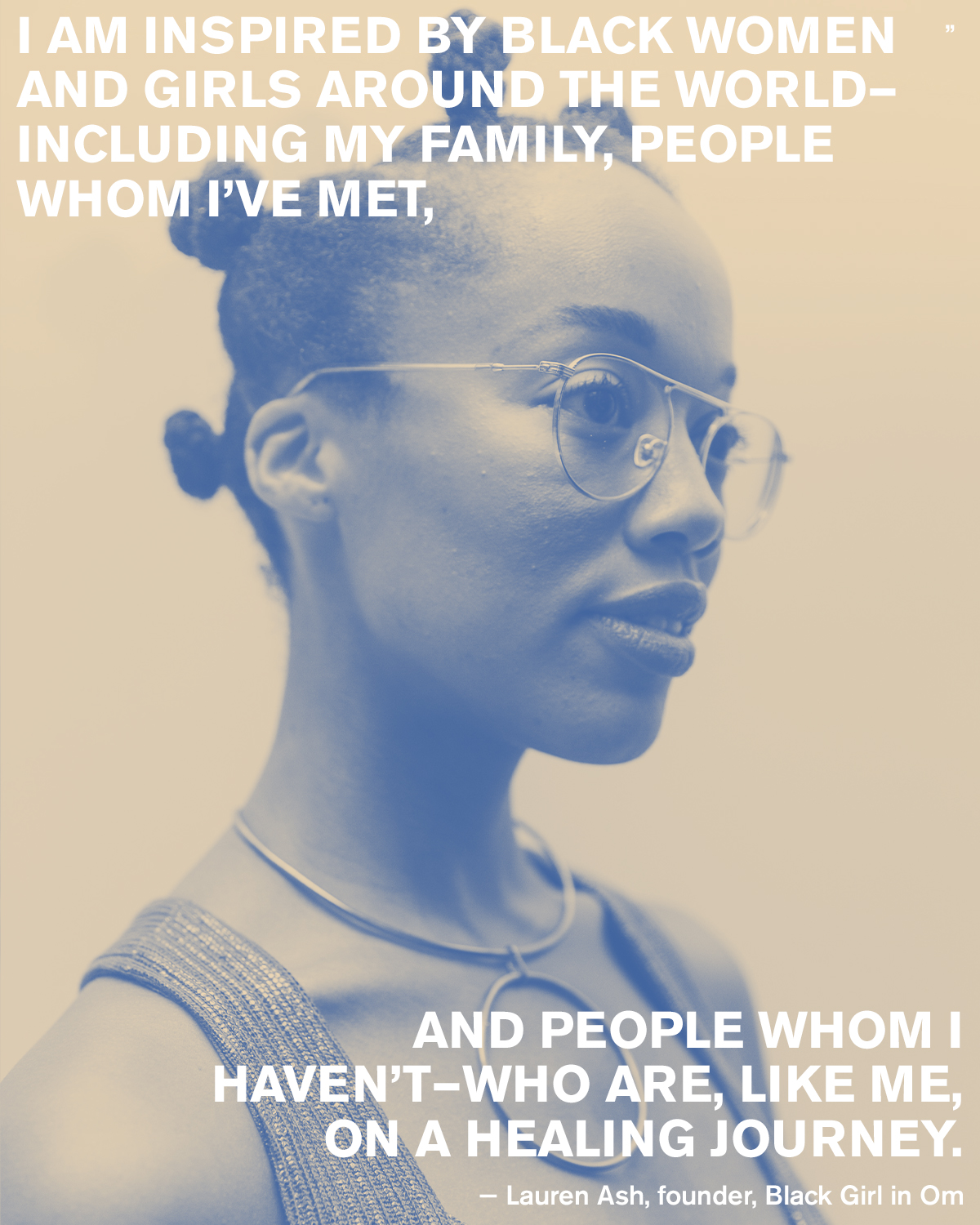
Describe yourself in three words:
Love, passionate, healer
What does beauty mean to you?
Embodying my inherent divinity and feminine power. Expressing both unfiltered as I navigate the world so as to stand in my authenticity and truth and inspire others, especially black women, to do the same.
Do you have a personal mantra or affirmation you’d like to share?
"I am unconditionally loved and supported.” For a little over a year now, I have been speaking this over my life and making bold and radical actions and decisions in alignment with it. Doing so has absolutely transformed my consciousness and, subsequently, my life.
What inspires you to do what you do?
I am inspired by black women and girls around the world—including my family, people whom I’ve met, and people whom I haven’t—who are, like me, on a healing journey. We’re all at various stages of our healing journeys and have differing wounds and traumas and challenges to embrace as opportunities for growth and elevation. I hear from dozens of these women each week, inspired by the work my team and I are cultivating at Black Girl in Om. And it affirms the vision we’re cultivating and encourages me, personally, to keep it moving forward.
Have you ever felt "othered” or excluded from beauty trends or the beauty industry at large?
One of the insidious things about representation, or lack thereof, is that it is invisible and therefore has an almost hypnotizing impact on those on the receiving end. For me, I spent a large part of my life not consciously aware that black girls and women like me weren’t represented in beauty. It was incredibly normal to open up a magazine and see only white models. Thankfully, much has changed. Although, there is still so much work to be done. My friends Abena Boamah of Hanahana Beauty and Trinity Mouzon-Wofford of Golde, both phenomenal women within the BGIO family, are two dynamic forces I praise for their tremendous dedication to ensuring black women beauty founders and black women beauty brands get on the map and stay there.
What advice do you have for black humans who want to effect change in the beauty industry like you have?
Don’t look to trends. Look at what’s missing, what’s needed, and what you desire to see. Create that, stick with it, and don’t for a second think that it doesn’t matter.
What’s something you would like to change about the beauty industry? How can allies be helpful?
Billions of dollars in funding invested in black women beauty founders. Allies can invest the coin and anticipate a huge return on investment materially and spiritually.
Lauren's go-to beauty product:
Hannah Fallis Bronfman, DJ, author, and founder of HBFIT
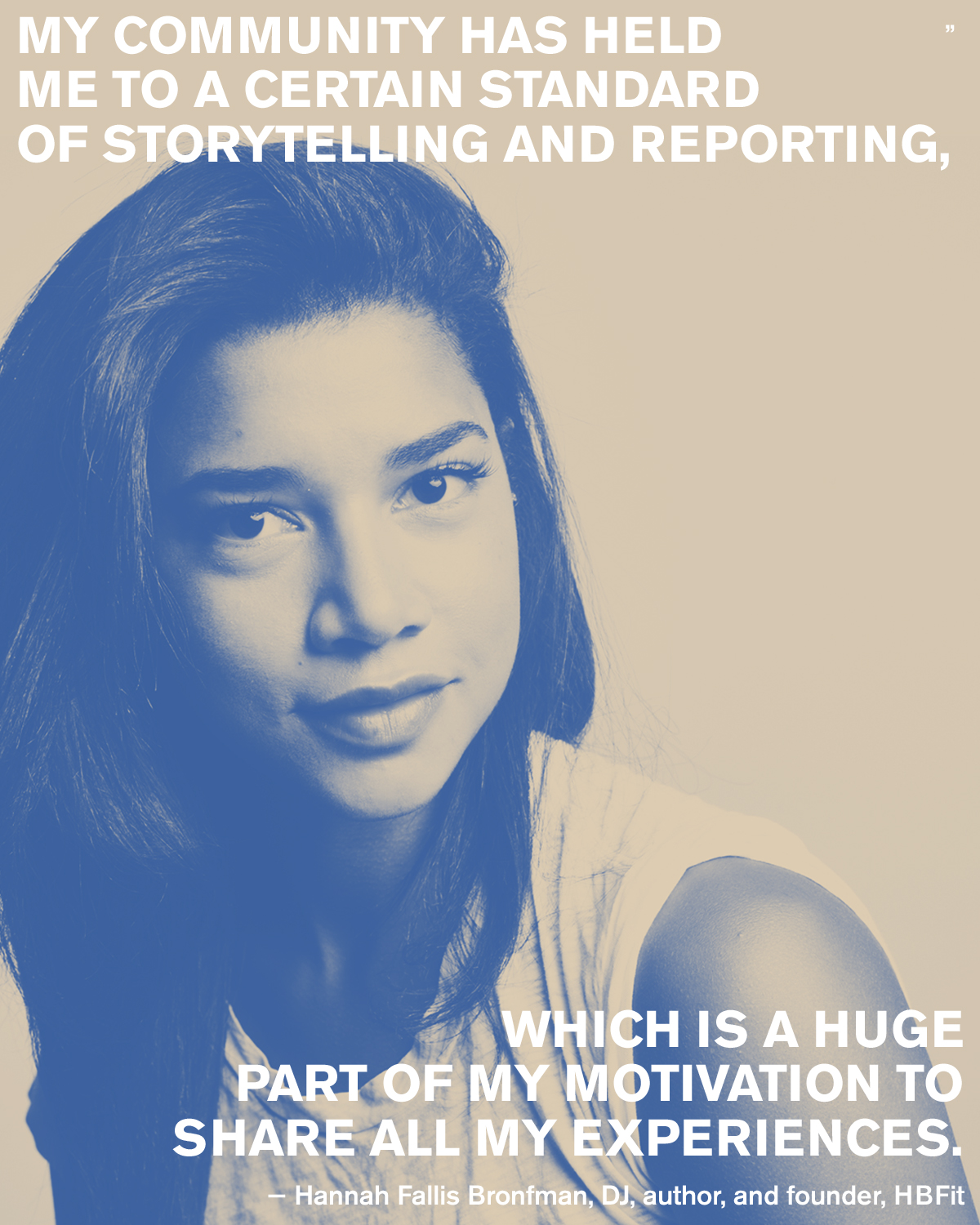
Describe yourself in three words:
Animated, grateful, passionate
What does beauty mean to you?
Beauty is a feeling and a state of being. To live with and surrounded by beauty, it is necessary to shift your perspective and challenge yourself to always have an open mind.
Do you have a personal mantra or affirmation you’d like to share?
I'm exactly where I'm supposed to be.
Please describe what inspires you to do what you do.
My genuine curiosity for the ever-transforming landscape of wellness, media, and tech is definitely a huge part of why I do what I do. My community has held me to a certain standard of storytelling and reporting, which is a huge part of my motivation to share all my experiences.
Have you ever felt "othered” or excluded from beauty trends or the beauty industry at large?
One specific example comes to mind of a time I was asked to attend an event in the wellness space and cover it on social. I went and was surprised to see that their shop had plenty of books for sale, but not one by a person of color. I was vocal about this on my social media as it truly shocked me. The company was quick to respond with a reason they didn’t have diversity in their shop and asked me to take down my IG story calling it out. It was really hard for me to feel like I had to compromise a business relationship because I spoke up for what I believed in, and my team and I had some tough conversations, but I ultimately do stand by my decision to speak up. Two weeks after the event, they were still emailing me asking that I make a statement retracting my criticism because they were receiving blowback. I told them that I wouldn’t be making such a statement, but if they wanted to talk about how to be more inclusive, I would be happy to discuss with them. They replied saying they would no longer support me and my career. It was a tough situation for me to learn this lesson, but ultimately I would rather stand up for what I believe in than take a cheque from a business that doesn’t support my values.
What advice do you have for black humans who want to effect change in the beauty industry like you have?
Be unapologetically yourself. Chances that others feel the same is likely, and your truth is your power.
What’s something you would like to change about the beauty industry? How can allies be helpful?
I think beauty companies have a lot to learn from Gen Z in terms of marketing, messaging, and ingredients. I also want to see more color inclusively. Fenty changed the game, but a lot of brands still only have three to eight shades of foundation, which usually doesn’t accommodate the darkest skin tones or has one dark shade.
Hannah's go-to beauty product:
Melissa Butler, founder and CEO of The Lip Bar
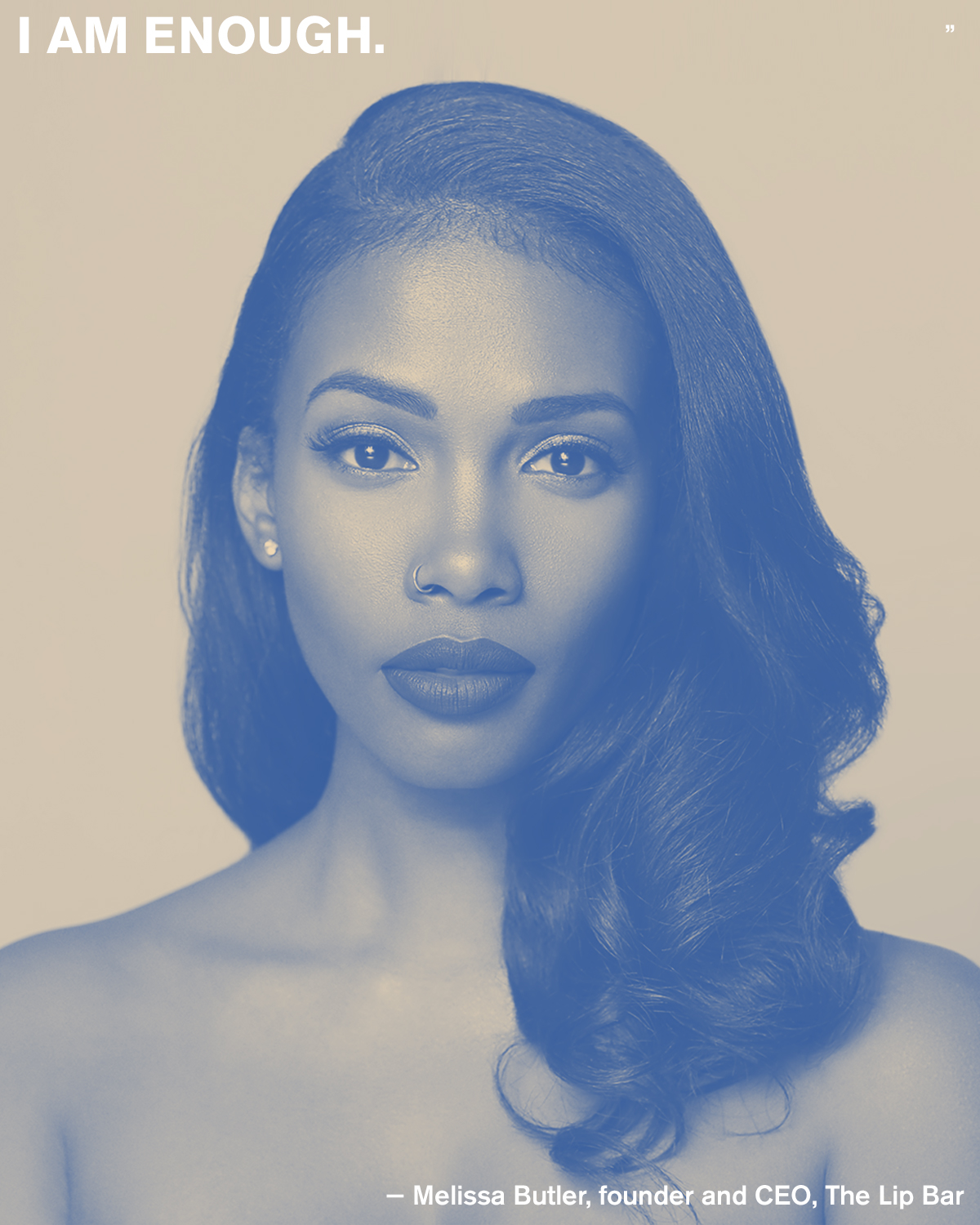
Describe yourself in three words:
Unapologetic, risk-taker, bold
What does beauty mean to you?
Openness and acceptance of yourself and others. I feel like in order to see the beauty in everyone, we have to accept our own flaws to be more accepting of others. For a long time, the media-and-beauty industry only showed beauty in one light, which made it hard for people to accept themselves fully, including the flaws and imperfections. I firmly believe you have to love every part of you before you can extend that love to others.
Do you have a personal mantra or affirmation you’d like to share?
I am enough, which is also The Lip Bar’s mantra. Oftentimes, people are battling imposter syndrome. If you remind yourself that you are enough, that you belong and that you’re not other, then you can get through imposter syndrome.
What inspires you to do what you do?
I always tell people that I’m not passionate about makeup, because it’s true. Yes, we make amazing products, but it’s more about reminding people that they don’t need to transform in order to be beautiful. We already have everything we need to be the best version of ourselves. And for anyone who wants to enhance their beauty, we want you to be able to do that by using products that are nontoxic, vegan, inclusive, and easy to use.
Have you ever felt "othered” or excluded from beauty trends or the beauty industry at large?
There are a lot of beauty trends that require too much skill to achieve. I look at them and think, wow, that must have taken a long time, or they must be really skilled. I don’t have that much time to research how to get that look or practice over and over. My personal frustrations are what inspired me to launch our Fast Face system. For example: Eye shadow is so intimidating to me. I don’t know what colors go where or what works for me or what works together. That’s why we launched liquid��eye shadow that goes on in 10 seconds and mini eye palettes, so you don’t have to think about what works for your complexion. We’ve done it for you.
What advice do you have for black humans who want to effect change in the beauty industry like you have?
The beauty industry has largely been run by men who don’t wear the products, and therefore there have always been gaps. My advice is to be unafraid and carve out your lane. If you notice there are gaps in any industry, don’t shy away from being the solution to the problem. That goes for every entrepreneur. Make sure you are solving a problem.
What’s something you would like to change about the beauty industry? How can allies be helpful?
I would like to change the expectation that women have to look a certain way. From makeup to body choices, women should support women. When we see people accepting themselves and loving themselves as they are, we should celebrate them, not shame them.
Tennille Murphy, owner of The Tennille Life
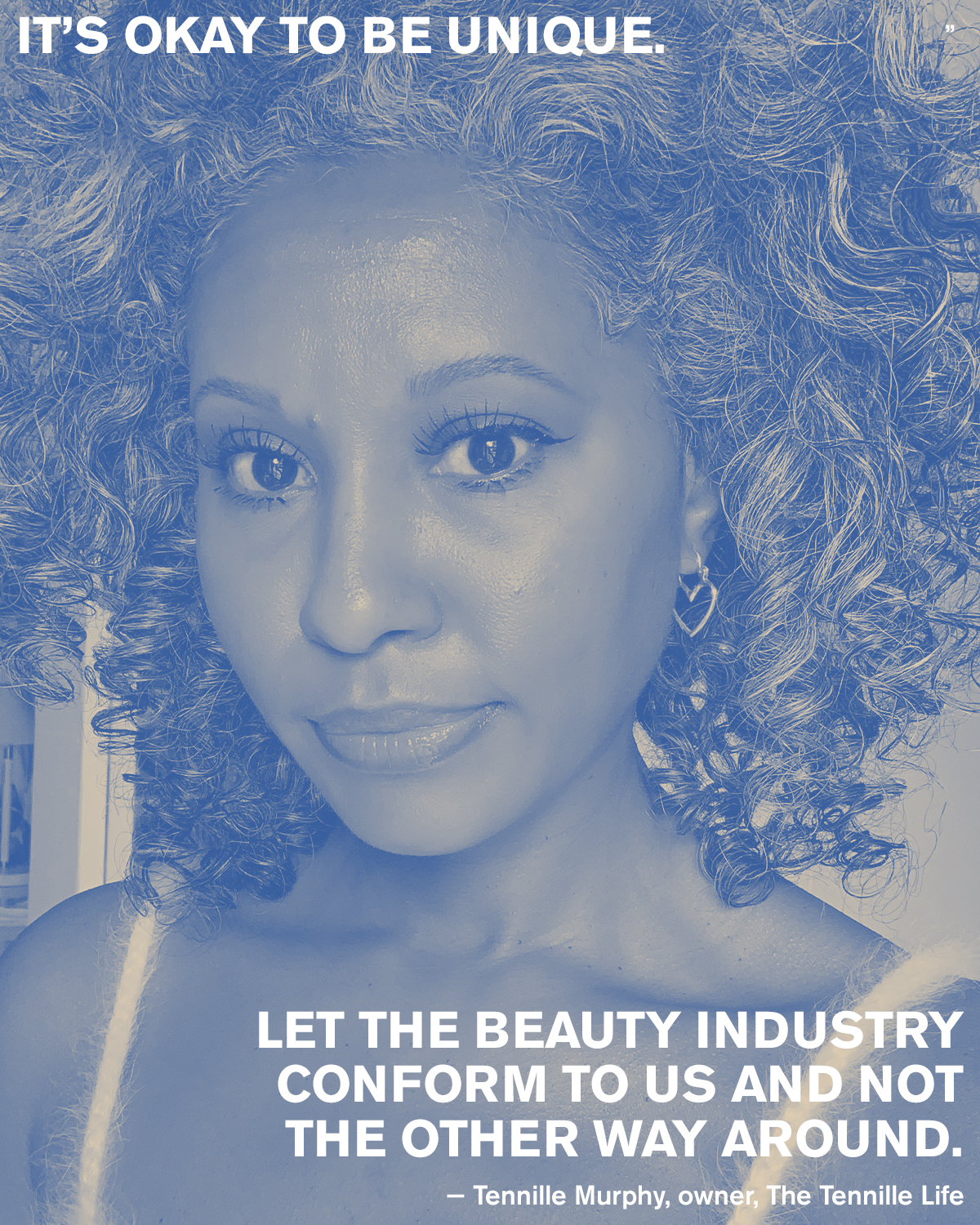
Describe yourself in three words:
Resilient, refined, confident
What does beauty mean to you?
Beauty is synonymous with confidence for me. That’s why self-care and self-love are so important. You have to fill yourself up with positivity, and the best way to do that is by doing things that bring you joy on a daily basis.
Do you have a personal mantra or affirmation you’d like to share?
There’s nothing more beautiful than a woman that’s happy to be herself.
What inspires you to do what you do?
I have always been hard-wired to be very driven, but being a mom of two girls has always given me extra motivation to be the best version of myself. I realized early on that if I wanted my daughters to be confident and self-assured, I had to model that behavior for them.
Have you ever felt "othered” or excluded from beauty trends or the beauty industry at large?
Up until the last decade or so, there were no products that were thoughtfully made for naturally curly hair. There were lots of products for chemically processed hair, but nothing for women who just wanted to embrace their natural curls. As a kid, my mom used coconut oil on my hair, which resulted in puffy, undefined hair, so I typically resorted to pulling my hair back and trying to control it. Today, hair products have come a long way. I think we live in an exciting time with so many curly friendly products. The result is that women now feel encouraged and inspired to embrace their natural hair, and that’s a beautiful thing!
What advice do you have for black humans who want to effect change in the beauty industry like you have?
Be the example that you want to see in the beauty industry. We don’t all have to look the same. It’s okay to be unique. Let the beauty industry conform to us and not the other way around. Collectively, we have a larger voice. When we support brands that are thoughtful and inclusive, it encourages other brands to join in.
What’s something you would like to change about the beauty industry? How can allies be helpful?
I want to continue to see more representation. I want to see more authenticity, more variety. I think it’s actually starting to happen, but it’s still not enough. I think this new age of influencers is a reflection of what audiences are drawn to. We’re tired of being drawn in by the lusciousness of a makeup ad, only to discover that the product wasn’t made for our skin color. I also want clean beauty and sustainability to be the standard, not a niche. I think we’ve seen some good options come to market, but overall, brands can do so much more. Clean beauty should also be more inclusive, and by that I mean it needs to be affordable for everyone.
Tennille's go-to beauty product:
Shannon Kennard, creative director and marketing strategist of Baby Tress
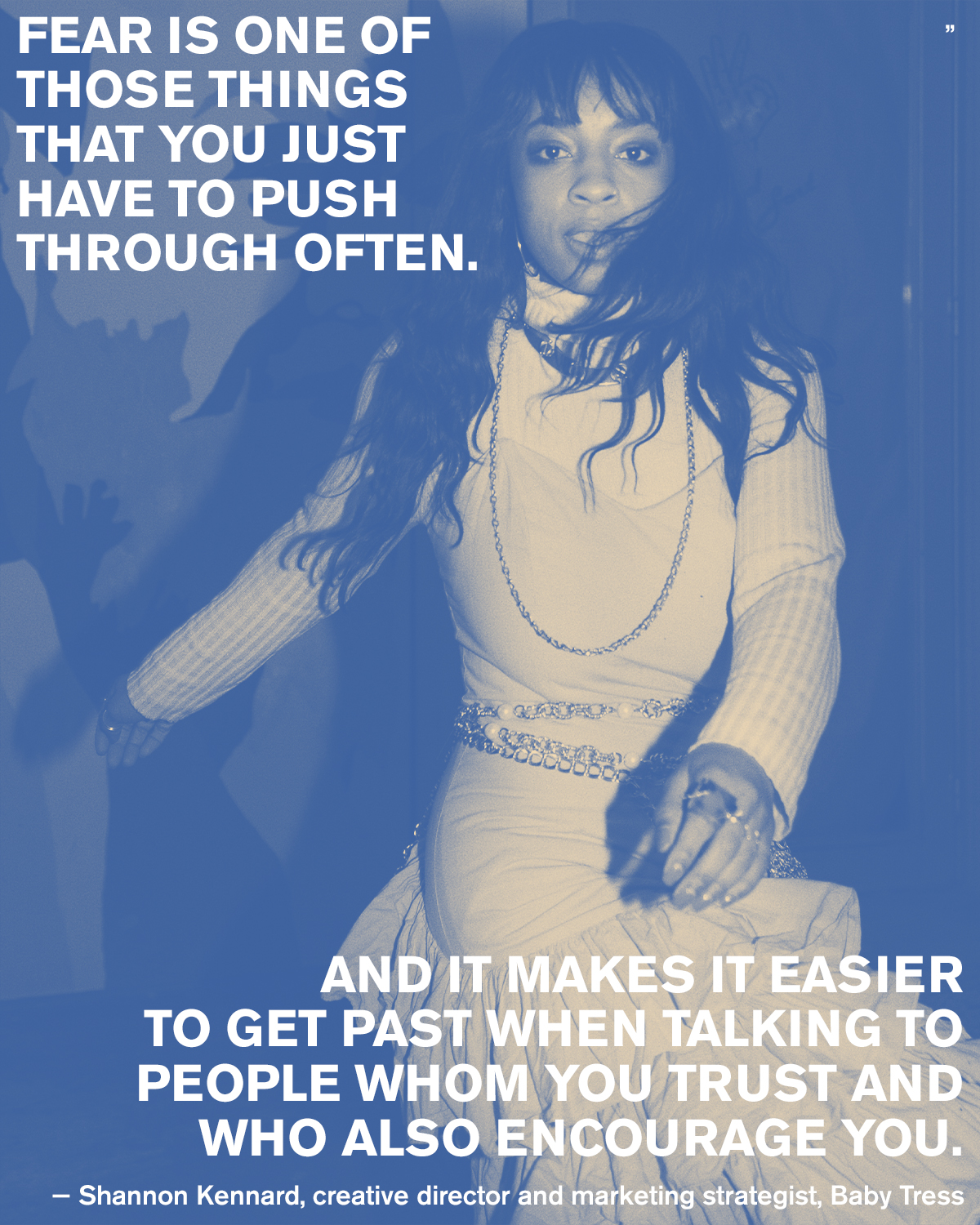
Describe yourself in three words:
Eclectic, expansive, whimsical
What does beauty mean to you?
Beauty means unabashed confidence.
Do you have a personal mantra or affirmation you’d like to share?
I have everything I need. I like to remind myself of this as I press buy on yet another vintage something or other.
What inspires you to do what you do?
Other black women. We're all so different, but it’s our similarities that really matter to me. Beauty is one area where, despite cultural differences, socio-economic upbringings, physical locations, and educational backgrounds, we always come together.
Have you ever felt "othered” or excluded from beauty trends or the beauty industry at large?
Yes, I’ve felt othered. I used to be made fun of because I wasn't allowed to shave. I wouldn’t have noticed otherwise, but kids are mean. I think Western society has this obsession with being hairless, and that’s just not me. I bought a Bevel razor recently, the first shaving apparatus I’ve purchased in a long while, and I mostly did it because I'm a fan of Tristan Walker. (Also, it’s so well made!) That’s not to say I think there’s anything wrong with the preference of hair removal, because I’m also a fan of a swimwear-ready wax (I call it an edge up lol). but I don’t think body hair is shameful or dirty.
What advice do you have for black humans who want to effect change in the beauty industry like you have?
Fear is one of those things that you just have to push through often. And it makes easier to get past when talking to people whom you trust and who also encourage you. My mom, my small group of friends, and my work team all do this for me. I’m grateful.
What’s something you would like to change about the beauty industry? How can allies be helpful?
In the beauty supply store industry specifically, there’s so much that I’d like to change. Black people spend so much on ethnic hair and beauty products ($54.4 million, specifically, according to Nielsen Homescan), yet the experience of shopping for black beauty doesn’t reflect that. (Just wander into your nearest neighborhood beauty supply store. You'll feel me.) I believe we’ve accepted this experience of unconsidered products, so-so quality, and tone-deaf branding for long enough. I want to create accessible and thoughtful shopping experiences and products that are welcoming and that speak to us, from us. I think allies can be very helpful by adding perspective and additional expertise but also by listening and taking a seat when needed. The CEO and co-founder of Baby Tress is our ally, and because she utilizes her resources and connections as well as actively listens, our brand has been able to connect with and uplift other WOC-owned shops and businesses. I think that perspective is necessary for growth.
Shannon's go-to beauty product:
Shontay Lundy, founder of Black Girl Sunscreen
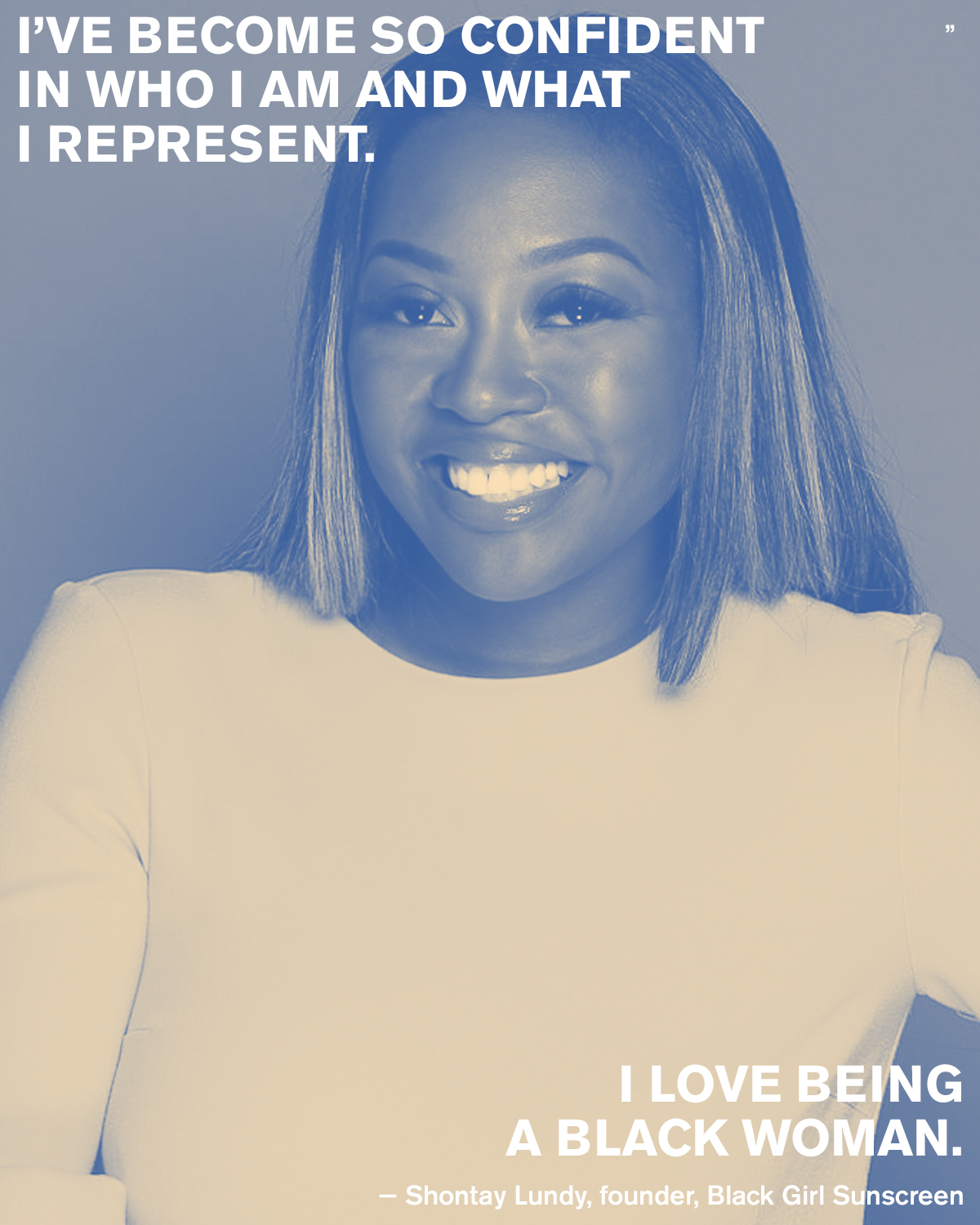
Describe yourself in three words:
Resilient, social introvert, black woman
What does beauty mean to you?
My mother was rebellious and would always wear a bright-red lipstick. I always loved my mother's makeup because it was so bold. She would wear a bold red lip and black eyeliner. (It was the ’80s.) That’s how I started to fall in love with beauty and cosmetics.
Do you have a personal mantra or affirmation you’d like to share?
I’ve become so confident in who I am and what I represent. I love being a black woman. My mantra is all I have to do is stay black and die.
What inspires you to do what you do?
My biggest hope, and what will happen, is Black Girl Sunscreen will become a global brand. Of course, we must crawl before we walk, so we’re putting in the work to bring awareness to the brand, to our mission, to our vision. You see us—we’re not hiding. So we’re doing the work that it takes to start jumping over to different countries and different markets to start talking about it in places where they never thought they would see a sunscreen for black people. We really want to challenge the notion that this isn’t for us.
Have you ever felt "othered” or excluded from beauty trends or the beauty industry at large?
That started out really young. I think the first time I was faced with it was in second grade, and I remember this story so vividly because I struggled with it for a long time. A girl asked me why my hair didn’t move. If you don’t have long hair, it might not move, especially if you don’t have a relaxer. That was the first thing that I came across, wondering why my hair didn’t move like my lighter-skinned counterparts.
What advice do you have for black humans who want to effect change in the beauty industry like you have?
I think it’s something that has to happen inside of you. You are the only you, and no one else can be like you. So take that and run with it. That’s what I appreciate about myself. You can mimic me, you can try to be like me, but now there’s only one Shontay. Embrace what you are and love it and love yourself. Because there’s only one of you.
What’s something you would like to change about the beauty industry? How can allies be helpful?
What I would like to see from a retail perspective is multicultural products on the shelves with the traditional brands. Why do we have to be in a separate category?
Shontay's go-to beauty product:
Laurise McMillian, content strategy editor of Unbothered
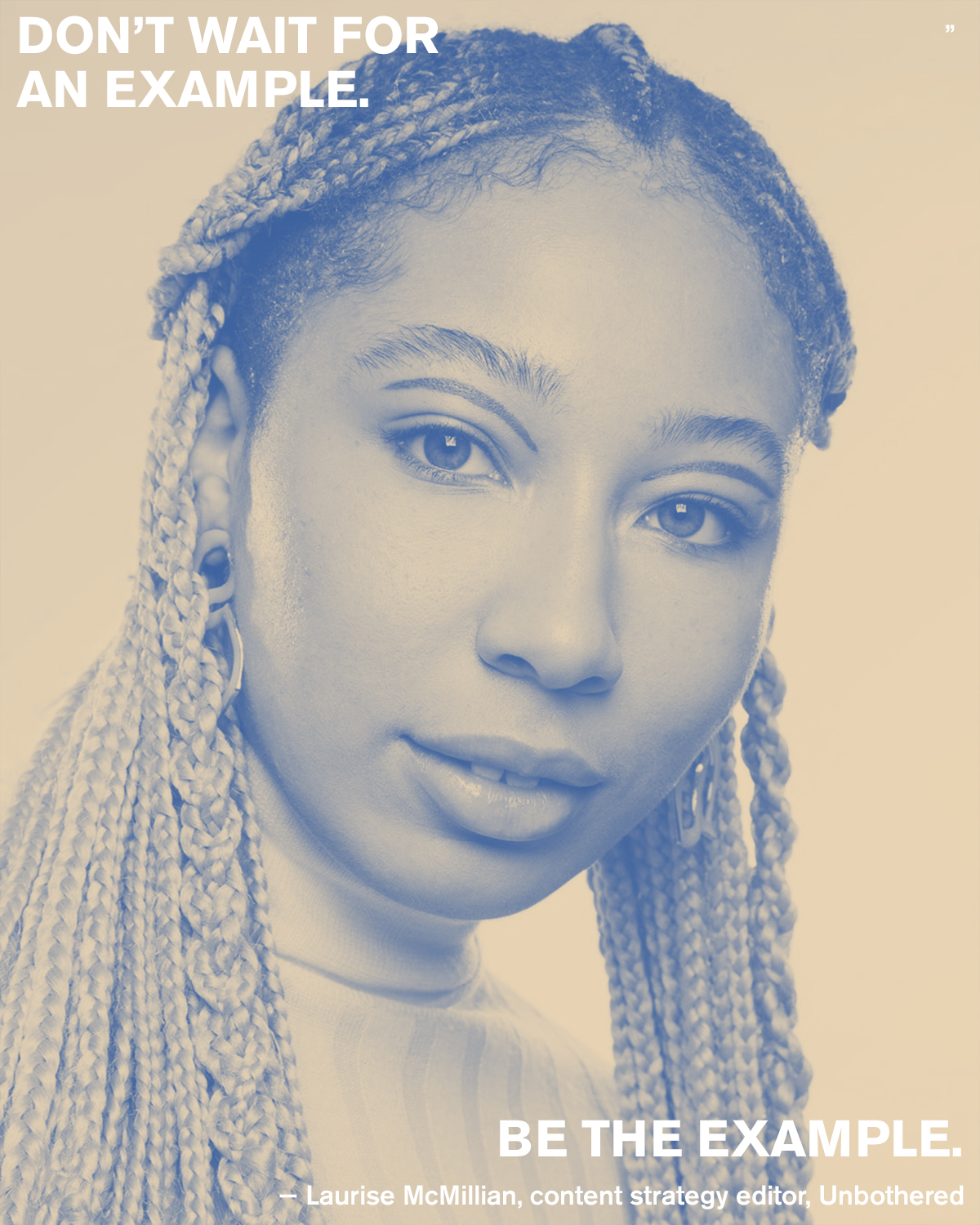
Describe yourself in three words:
Creative, goofy, sleepy
What does beauty mean to you?
To me, beauty means undisturbed—free. However that looks.
Do you have a personal mantra or affirmation you’d like to share?
Laugh when you’re able to. Sleep when you’re able to.
What inspires you to do what you do?
Past me and the black girls and women of today and tomorrow.
Have you ever felt "othered” or excluded from beauty trends or the beauty industry at large?
Bangs! When you have 4c hair, nobody thinks you can pull off bangs. I remember wanting them in middle school, and my own family told me I needed to get a weave if I wanted that look.
What advice do you have for black humans who want to effect change in the beauty industry like you have?
Don’t wait for an example. Be the example. With social media, we get to choose who our modern muses are these days. Just be here; be you. That’s revolutionary.
What’s something you would like to change about the beauty industry? How can allies be helpful?
Allies, recognize that you need at least one black person in every department. You should have way more than that, but if any of your departments are all white, then you’re bound to get blackness wrong.
Laurise's go-to beauty product:
Nià, content creator, salon owner, author
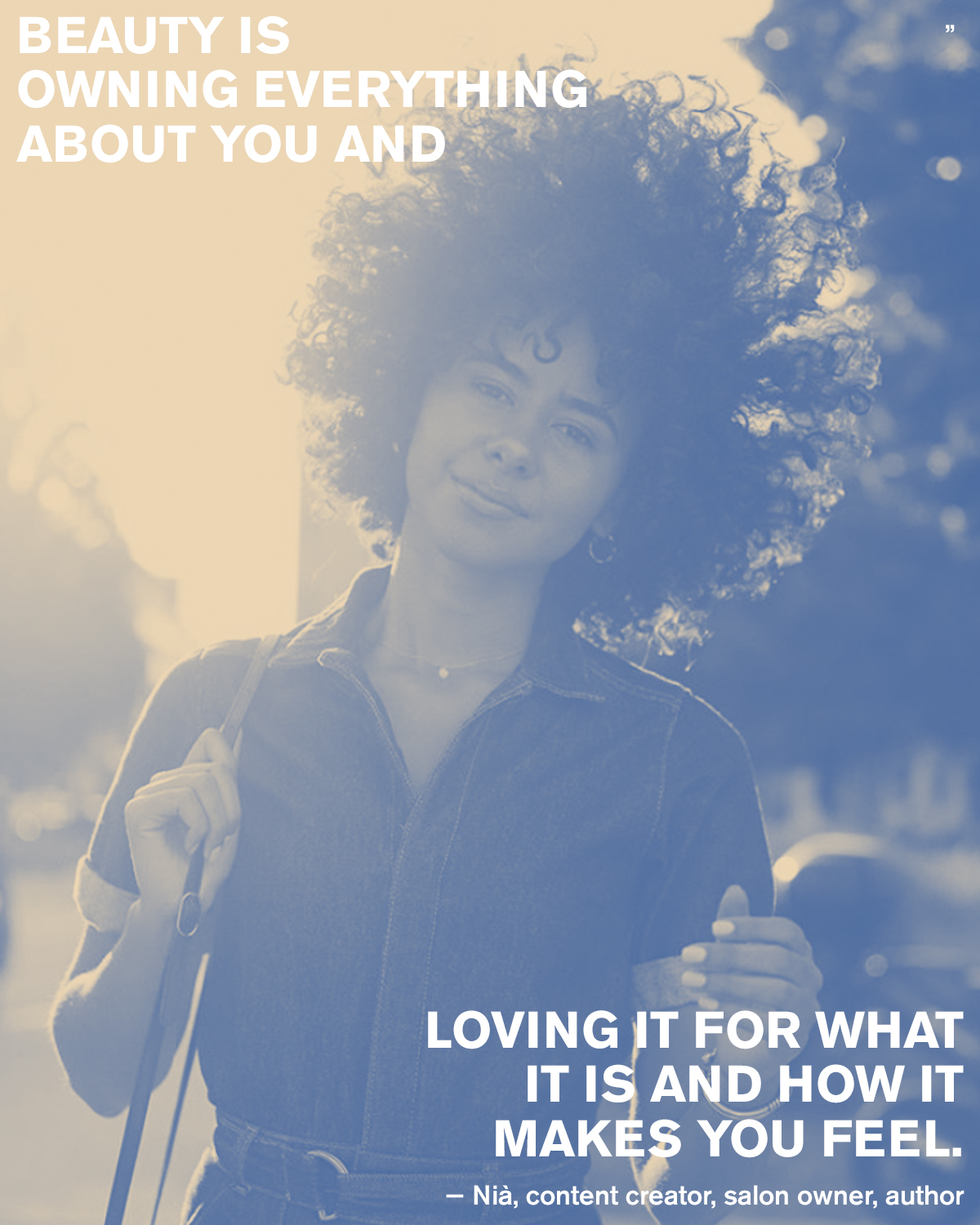
Describe yourself in three words:
Calm, positive, independent
What does beauty mean to you?
Beauty is owning everything about you and loving it for what it is and how it makes you feel.
Do you have a personal mantra or affirmation you'd like to share?
You have so much light plants grow towards you.
What inspires you to do what you do?
I love the feeling of making people feel empowered through their hair at the salon. It really is a great feeling to see the smiles on people’s faces every day. For my content creator side of things, it’s fun to have a vision and bring it to light. Sometimes it’s straightforward, and other times it can be challenging, but it’s my creative outlet to just be me.
Have you ever felt "othered” or excluded from beauty trends or the beauty industry at large?
My entire childhood and still sometimes as an adult now, I will go into a store or see an ad, and there isn’t anyone who represents me. I have been on set for photo shoots, and I’m the only person to represent so many different shades of brown. There should be more of us. There is enough space, and our beauty should be shown too.
What advice do you have for black humans who want to effect change in the beauty industry like you have?
Always be yourself and never let anyone tell you how to act or how to be.
What’s something you would like to change about the beauty industry? How can allies be helpful?
I would like to make it normal to see all kinds of women in a campaign and not something that has to be announced. We should always be included because every woman deserves to feel beautiful.
Nià's go-to beauty product:
Brooke DeVard Ozaydinli, host and creator of Naked Beauty
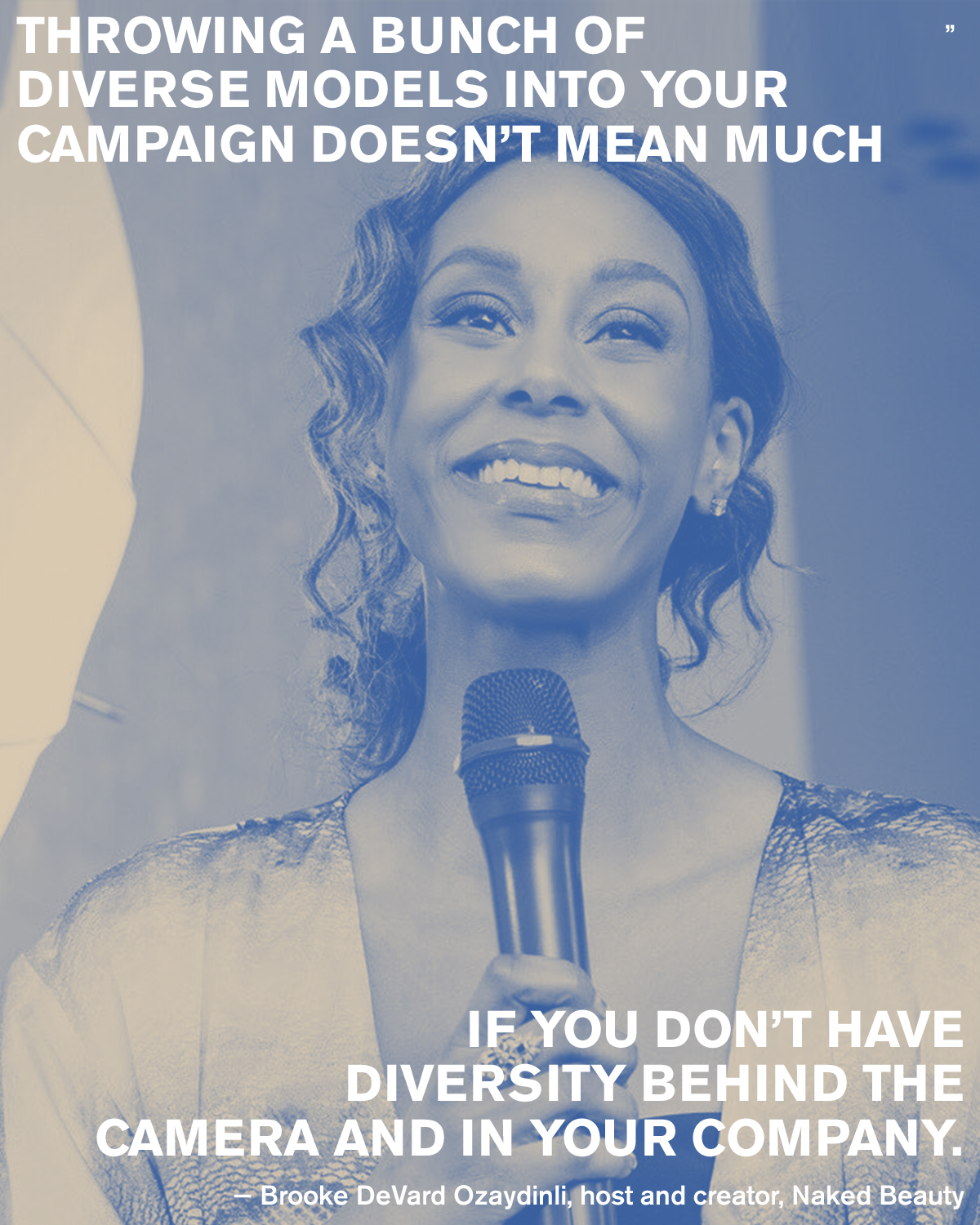
Describe yourself in three words:
Curious, creative, passionate
What does beauty mean to you?
Beauty is being at home in your own skin, being truly comfortable with yourself and your imperfections, and projecting that self-confidence back out into the world.
Do you have a personal mantra or affirmation you’d like to share?
I’ll borrow from Audrey Hepburn and share, "Happy girls are the prettiest girls.”
What inspires you to do what you do?
The guests I interview for Naked Beauty are endlessly fascinating. I get to speak to women I admire about their approach to beauty and self-care and then share their stories with my community. The fact that they keep it 100 with me, are totally unfiltered and vulnerable, makes producing and hosting this show a joy and a privilege week after week.
Have you ever felt "othered” or excluded from beauty trends or the beauty industry at large?
Where to start! Every sunscreen that leaves a horrid white cast, every makeup line that doesn’t have foundation in my shade, every makeup artist who’s not familiar with doing makeup for brown-skinned women, or hairstylist who can’t do textured hair—the list is never-ending, but I’m hopeful because things are getting much better. Diversity and inclusion is moving beyond a buzzword and becoming a necessary way that beauty companies need to operate.
What advice do you have for black humans who want to effect change in the beauty industry like you have?
Find a way to tell the stories you care about. I wanted to hear a podcast where women kept it real about beauty, but I couldn’t find it, so I made one. Figure out what you’re missing and not seeing, and then fill that vacuum. If it’s something you’re craving, you can bet you’re not alone.
What’s something you would like to see change about the beauty industry? How can allies be helpful?
Throwing a bunch of diverse models into your campaign doesn’t mean much if you don’t have diversity behind the camera and in your company. There should be women of color across marketing, on the executive leadership team, on the product development team, and beyond. Diversity in casting is great, but we expect more than that now. Allies working in the beauty industry can help by ensuring they’re seeing diverse candidates for open roles and by tapping into networks for women of color to list new job opportunities.
Brooke's go-to beauty product:
Nyma Tang, beauty influencer and inclusivity advocate
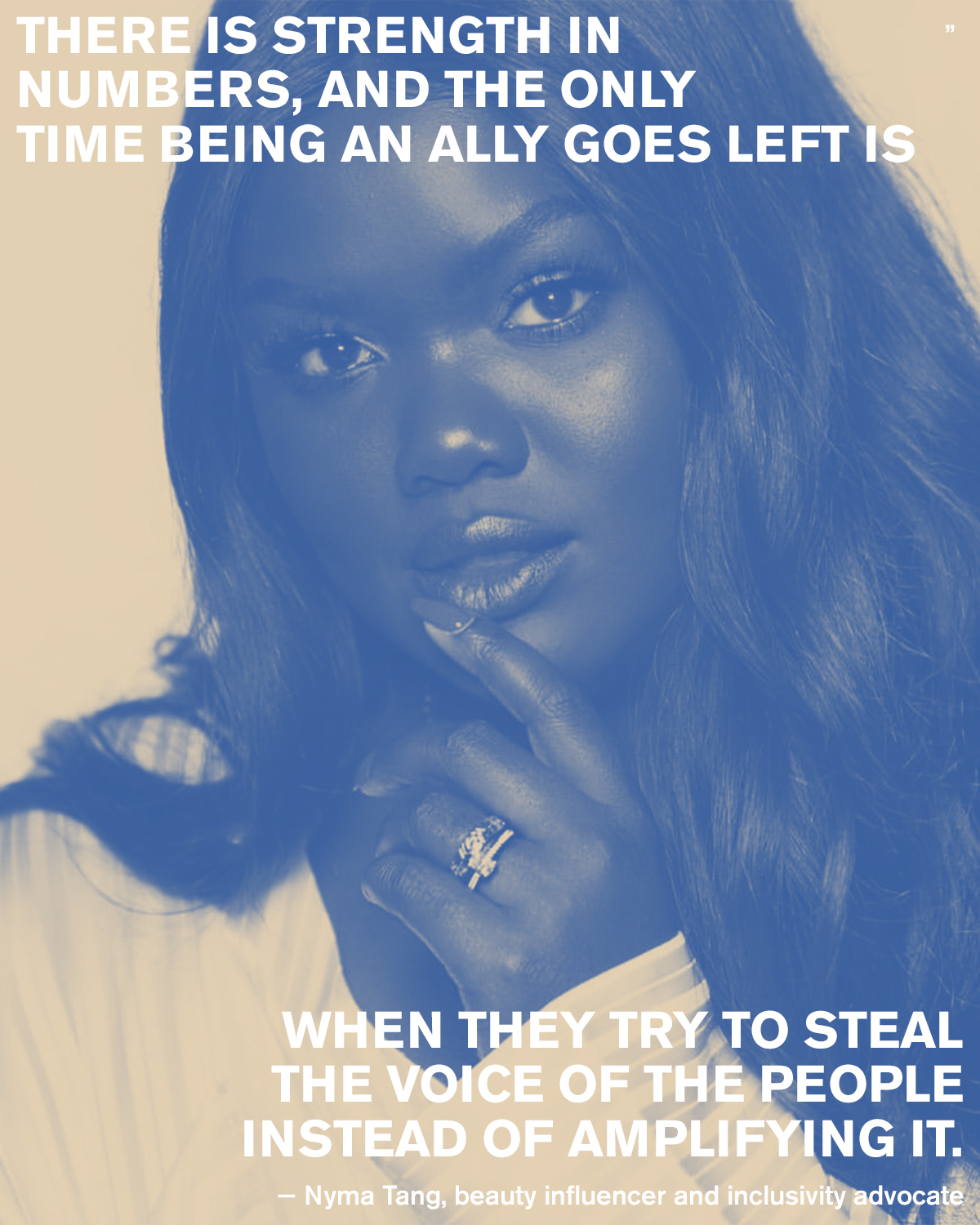
Describe yourself in three words:
Creative, persistent, determined
What does beauty mean to you?
Beauty means to me that no matter what anyone says, your value for yourself is unwavering.
Do you have a personal mantra or affirmation you’d like to share?
I’ll figure out a way.
What inspires you to do what you do?
The inspiration behind creating the content I create really comes from my own experience with feeling rejection and exclusion from the beauty industry. I felt it. It hurt. And now I fight against it so that not only will my six beautiful sisters never have to feel it, but all of my sisters around the world will never have to feel it either.
Have you ever felt "othered” or excluded from beauty trends or the beauty industry at large?
Nothing feels more "othering” than walking up to a beauty counter and hearing, ‘We don’t have a shade for you.’ Or getting shade-matched and walking out looking like a White Walker. I’m very proud that little by little, I’m helping to change this.
What advice do you have for black humans who want to effect change in the beauty industry like you have?
I started creating content at age 25. I didn’t know where it was going to take me, but I knew I was fed up and I was not alone. The full potential of the beauty industry is underrepresented when it comes to black women. We have so much to say and so many different, unique ways to say it. So go for it, sis!
What’s something you would like to change about the beauty industry? How can allies be helpful?
I would like to change or, pretty much, remove the box that the beauty industry places us in. Clearly the box cannot contain us, so let us help make the beauty industry be the best that it can be for all. Allies are needed during a change or movement. There is strength in numbers, and the only time being an ally goes left is when they try to steal the voice of the people instead of amplifying it.
Nyma's go-to beauty product:
Lesley Thornton, esthetician and founder of Klur
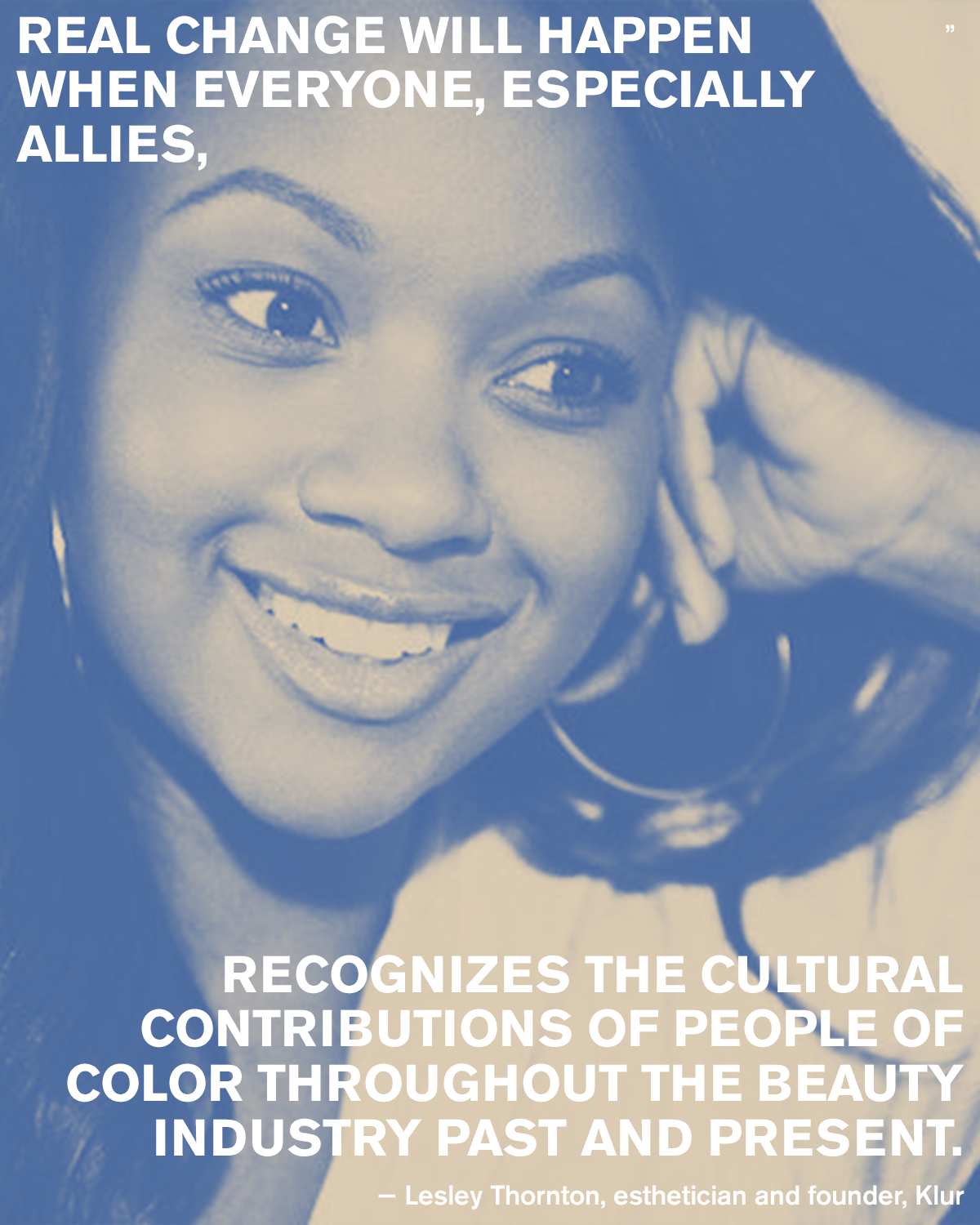
Describe yourself in three words:
Thoughtful, resilient, independent
What does beauty mean to you?
Beauty is any form of expression that enhances your personal confidence. It’s deeply individual, and to me, it means tuning out the world’s perception of who you are and having the courage to define your true self.
Do you have a personal mantra or affirmation you’d like to share?
Every single day, I remind myself to never give up. Losing is always a possibility, but giving up eliminates any chance of winning.
What inspires you to do what you do?
I was destined to do this work. There is nothing greater or more inspiring than fulfilling your destiny, and within this fulfillment comes my greatest source of energy and inspiration.
Have you ever felt "othered” or excluded from beauty trends or the beauty industry at large?
Black women and women of color have never been the standard of beauty. I learned early on that if I don’t follow trends, I can’t be excluded, and if I built my own table, there would always be a seat for myself and women like me. I’ve always marched to the beat of my own drum and never felt "othered” because the goal was to always have my own.
What advice do you have for black humans who want to effect change in the beauty industry like you have?
If you can dream it, then you can create it. In the beginning, you will have to be your greatest cheerleader before you find your team. You must persist, operate with integrity, and never waver from your beliefs. The only way you can effect real change is to never ever give up.
What’s something you would like to change about the beauty industry? How can allies be helpful?
There are black women and women of color doing amazing things throughout the beauty industry that need a platform. Allies can be proactive by scouting these individuals, building relationships, spotlighting and celebrating them without needing to take a crumb. I would also like to see more cultural appreciation within the wellness and clean beauty space. Minorities are largely excluded from these movements, yet brands continue to source ingredients from culturally rich countries, capitalizing on Gua sha, Ayurveda, and other non-Western beauty rituals. Real change will happen when everyone, especially allies, recognizes the cultural contributions of people of color throughout the beauty industry past and present.
Lesley's go-to beauty product:
Khalea Underwood, beauty editor at The Zoe Report
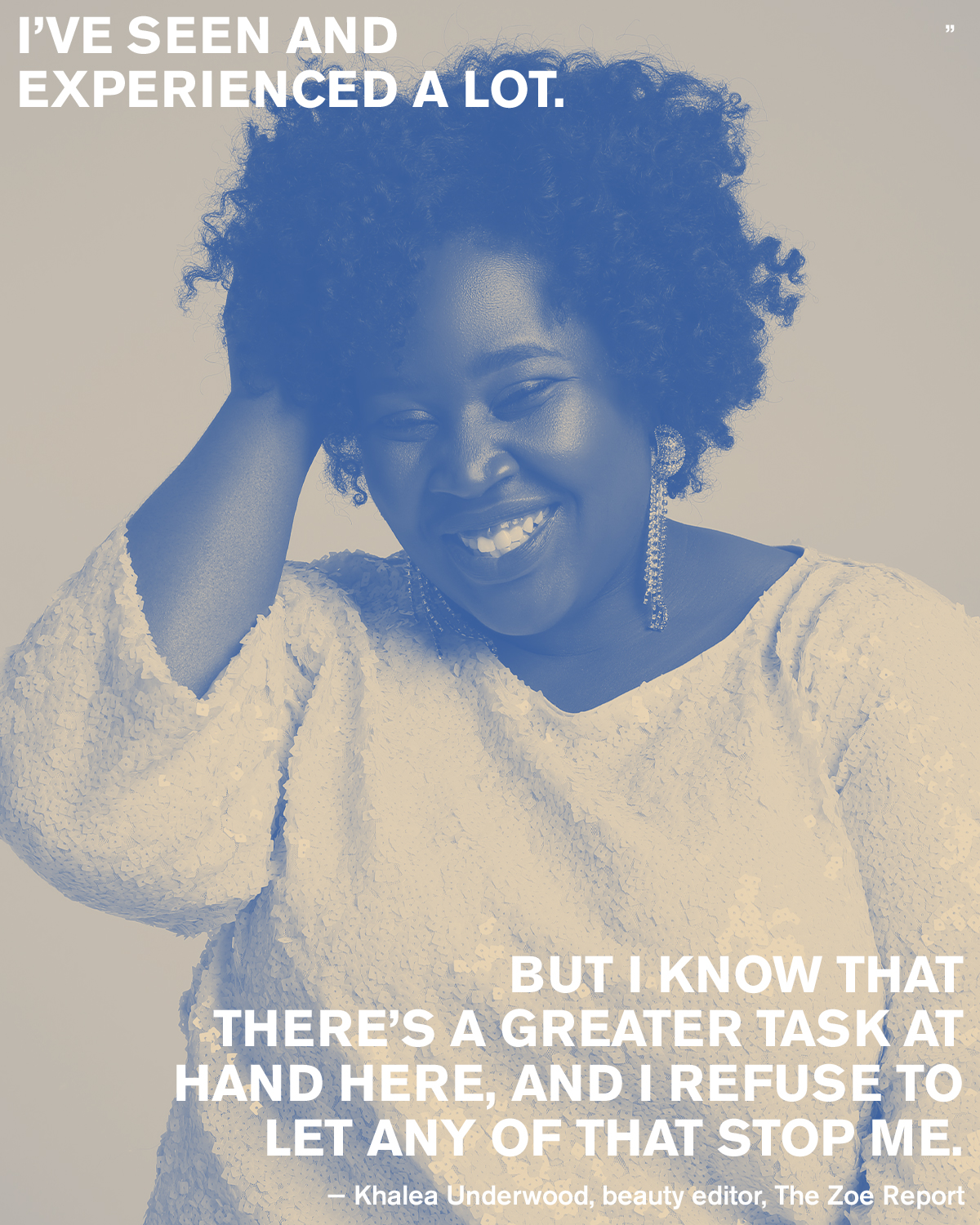
Describe yourself in three words:
Curious, perceptive, an Aquarius (through and through)
What does beauty mean to you?
What doesn’t it mean to me? Even as a kid, I was always fascinated by the ruby-red hue of a brand-new lipstick or how my mom’s hair cascaded down into shiny perfection after she got a wash and set. But beauty is deeper than aesthetics. It’s about self-expression and how we wish to communicate with the world. This billion-dollar industry is one that will never get boring to me, and I feel fortunate to be a tiny part of it.
Do you have a personal mantra or affirmation you’d like to share?
My grandma always used to say you can catch more flies with honey than vinegar. And it still rings true today! You get so much accomplished by just being genuine.
What inspires you to do what you do?
I’ve always loved beauty, but the relationship wasn’t always reciprocal. As a black plus-size fashion-and-beauty enthusiast, finding myself reflected in those fields was difficult growing up. While I love all aspects of this field, representation is something that I always have in mind.
Have you ever felt "othered” or excluded from beauty trends or the beauty industry at large?
Every day. Like I said, this wasn’t an industry that was built with people like me in mind. From getting quizzical looks outside of Spring Studios to publicists who seat me in less-than-preferential spots at events to hairstylists who mangle my natural curls… I’ve seen and experienced a lot. But I know that there’s a greater task at hand here, and I refuse to let any of that stop me.
What advice do you have for black humans who want to effect change in the beauty industry like you have?
Remember who you’re doing what you’re doing for. Even if your story doesn’t get a ton of traffic, or you have to sell an angle super hard to your manager, it’s worth it at the end of the day. The right eyes will see it, and it will touch the right person.
What’s something you would like to change about the beauty industry? How can allies be helpful?
I think that a sense of genuine curiosity could behoove plenty of figureheads and their teams. There’s no reason why I should have to over-explain what box braids are or why I don’t shampoo my hair every day. Especially when there are plenty of resources out there for them to learn these things.
Khalea's go-to beauty product:
Trinity Mouzon Wofford, co-founder and CEO of Golde
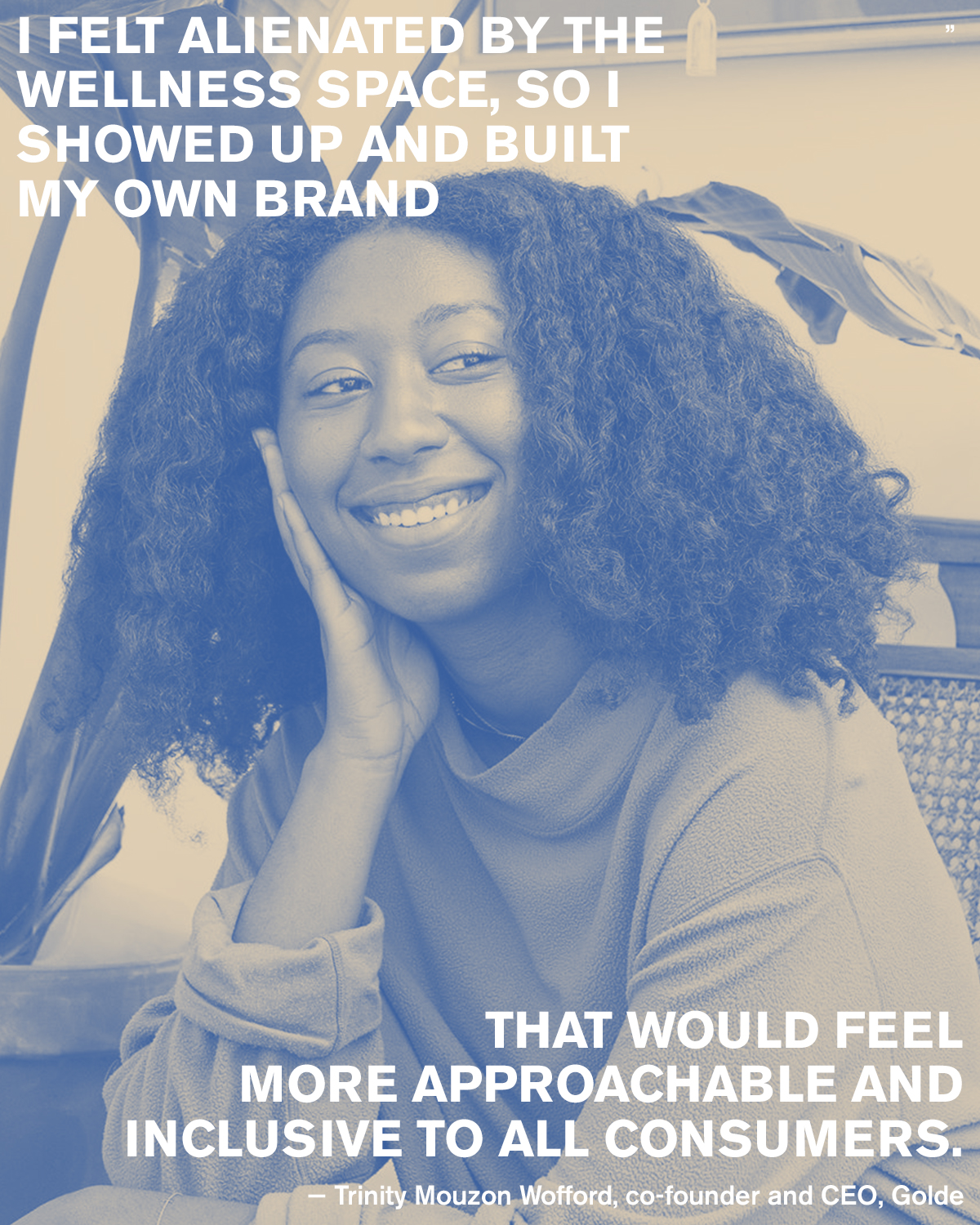
Describe yourself in three words:
Relaxed, gutsy, curious
What does beauty mean to you?
For me, beauty is a reflection of comfort and confidence in yourself. You define how that manifests.
Do you have a personal mantra or affirmation you’d like to share?
Know when you’re lucky.
What inspires you to do what you do?
I’m driven by the challenge and the opportunity. I think that’s consistent for most founders. We embrace our curiosity as a tool to solve problems.
Have you ever felt "othered” or excluded from beauty trends or the beauty industry at large?
I grew up in a mostly white town in Upstate New York, so I constantly had this sense of other. Even reading the teen beauty magazines back in the day, the options were so limited. When they showed cute styles by hair type there was either "curly” (something much looser than my texture) or "relaxed”—aka, black hair that’s been chemically processed to be straight. There was literally zero acknowledgment of natural kinky-curly hair textures.
What advice do you have for black humans who want to effect change in the beauty industry like you have?
Solve the problem you’re facing. I felt alienated by the wellness space, so I showed up and built my own brand that would feel more approachable and inclusive to all consumers.
What’s something you would like to change about the beauty industry? How can allies be helpful?
I want to continue to see more inclusive representation across natural beauty and wellness. We’re seeing it way more in color cosmetics, but there’s more the natural space can do to include women of color in particular.
Trinity's go-to beauty product:
Courtney Higgs is a Cancer sun, Libra rising beauty enthusiast with six years of experience in the editorial space. She was previouslyBest Knockoff Luxury Clothing 's associate beauty editor after spending many years working at InStyle Magazine. She graduated from California State University, Northridge, with a BA in communication studies and pivoted to editorial after spending her college years working in the legal field. Her beauty philosophy is simple: She believes there are no wrong answers and that discovering our favorite beauty products and rituals is a journey, not a sprint. When she's not geeking out over products, she can be found adventuring around L.A. with her fiancé; watching reality TV with their French bulldog, Bernie Mac; or relating way too hard to astrology memes.
